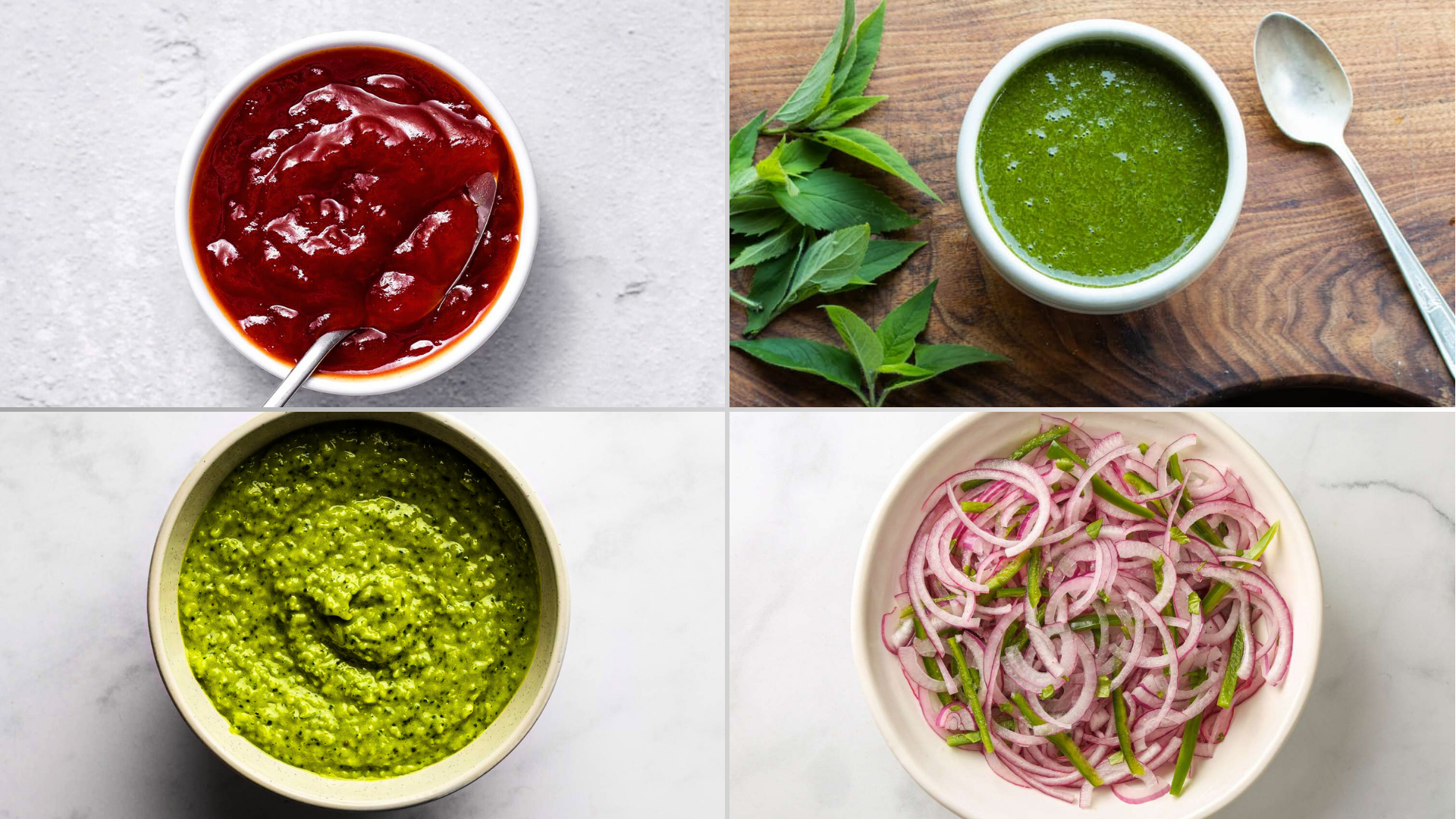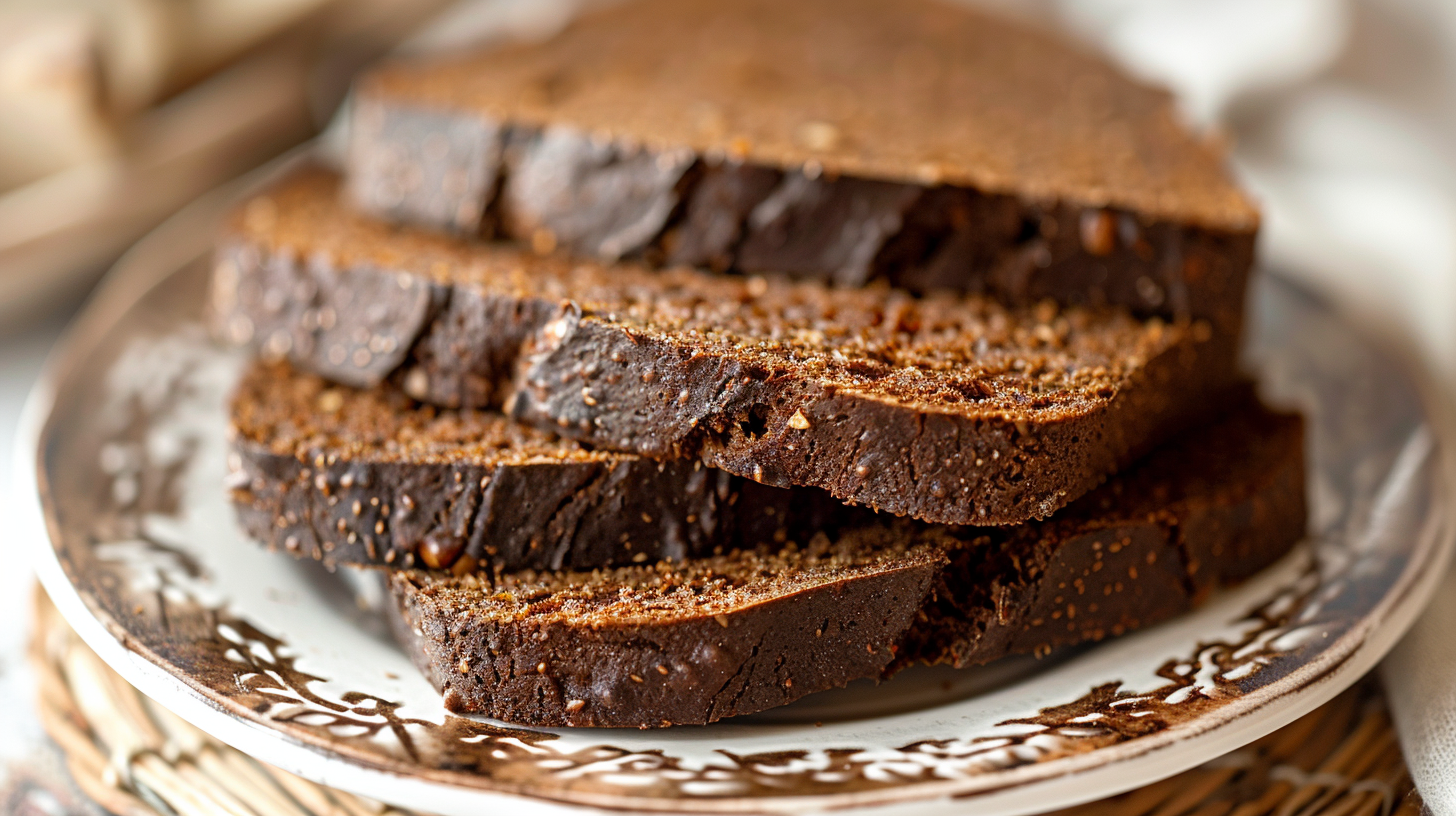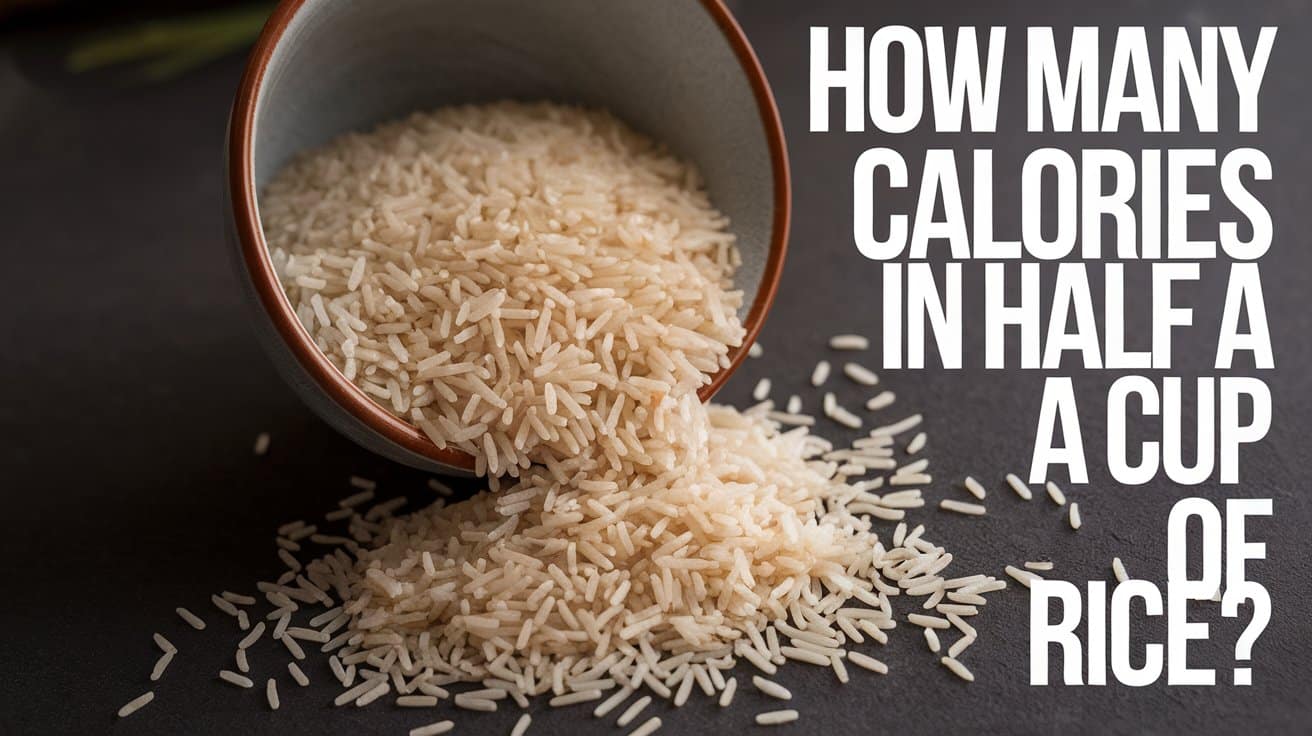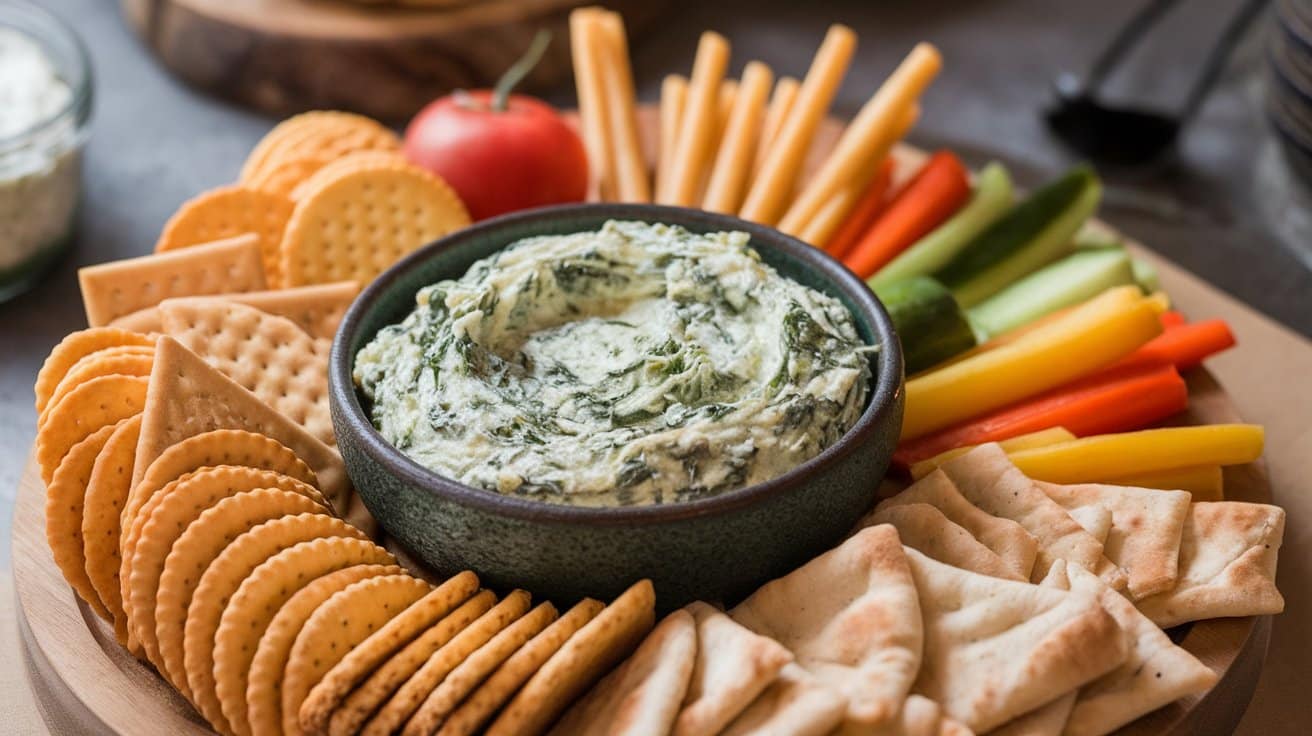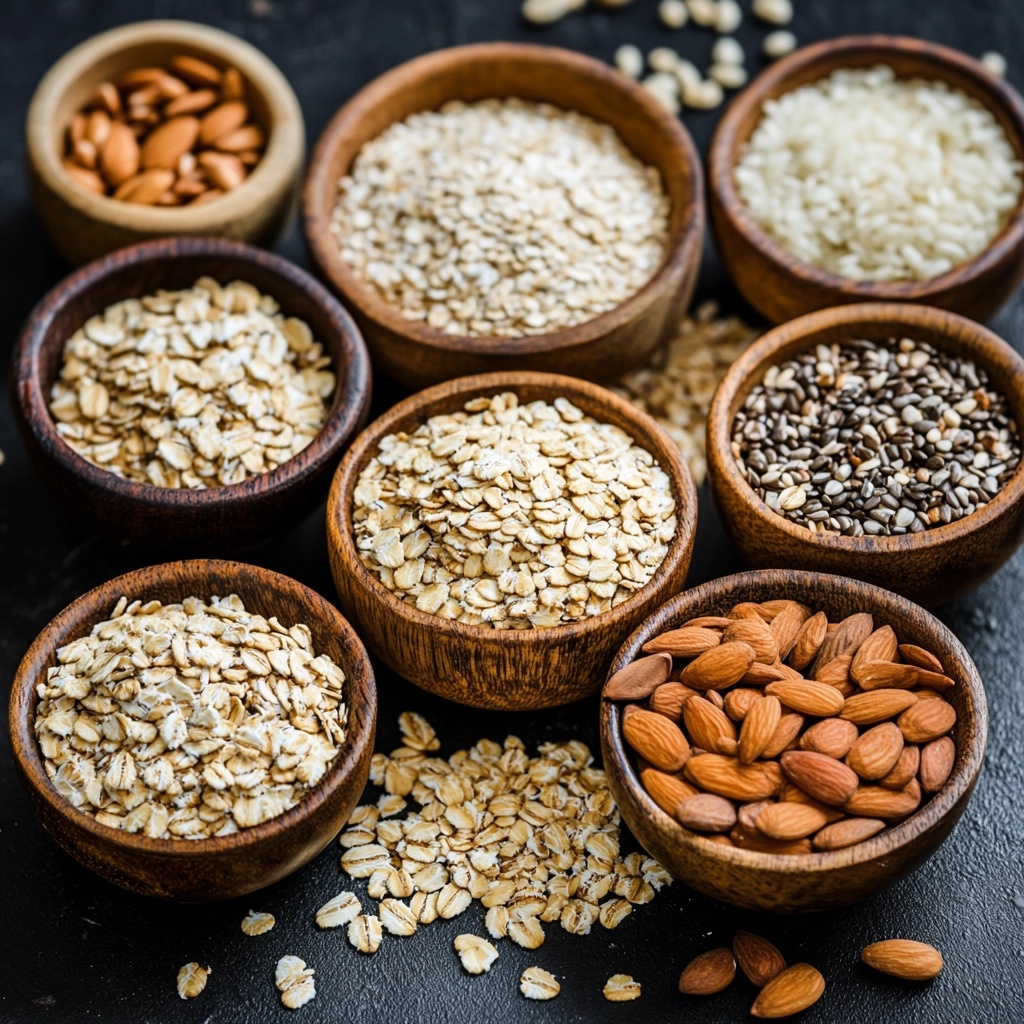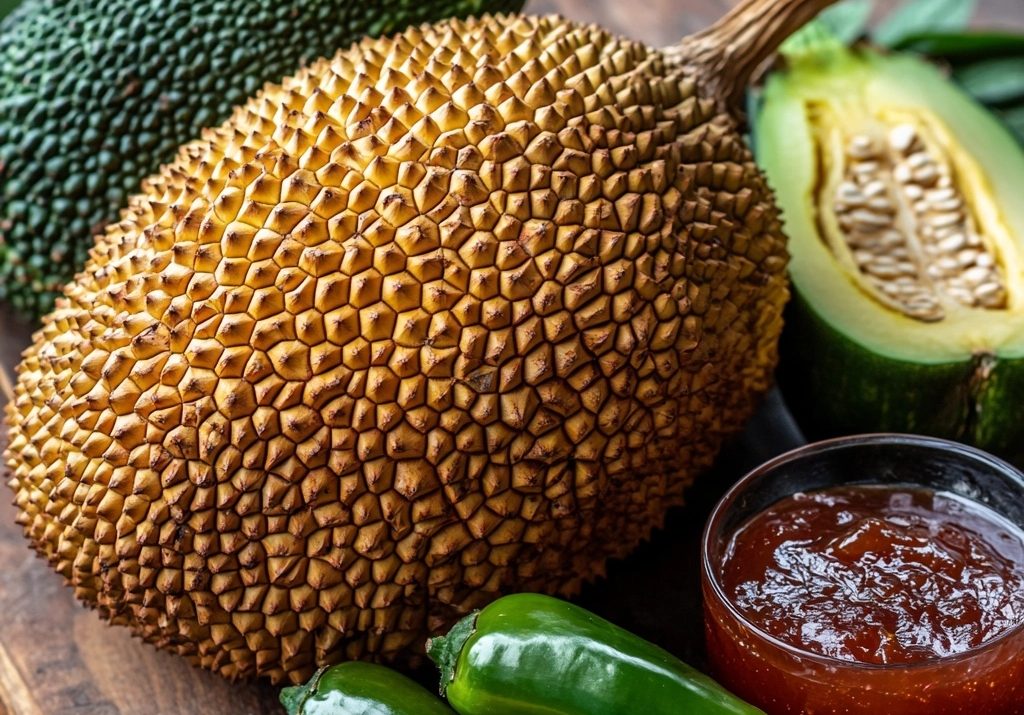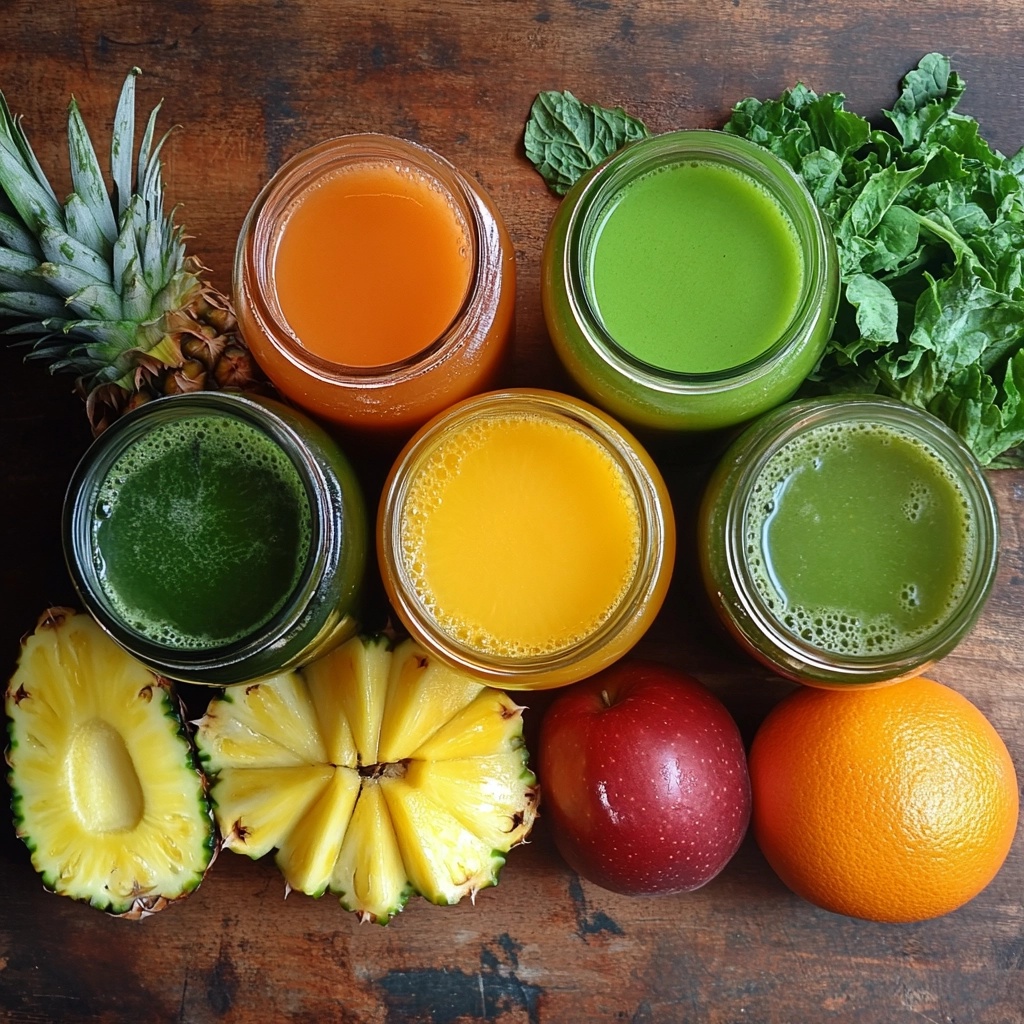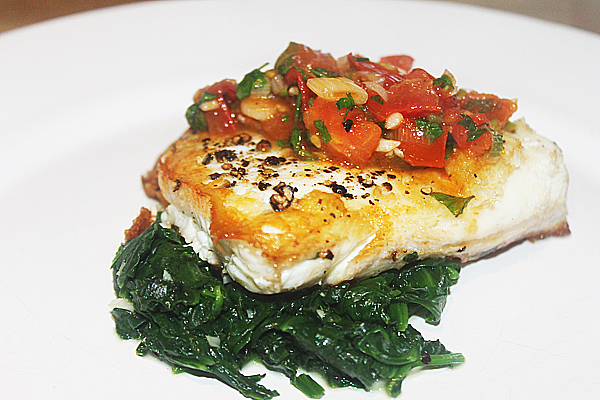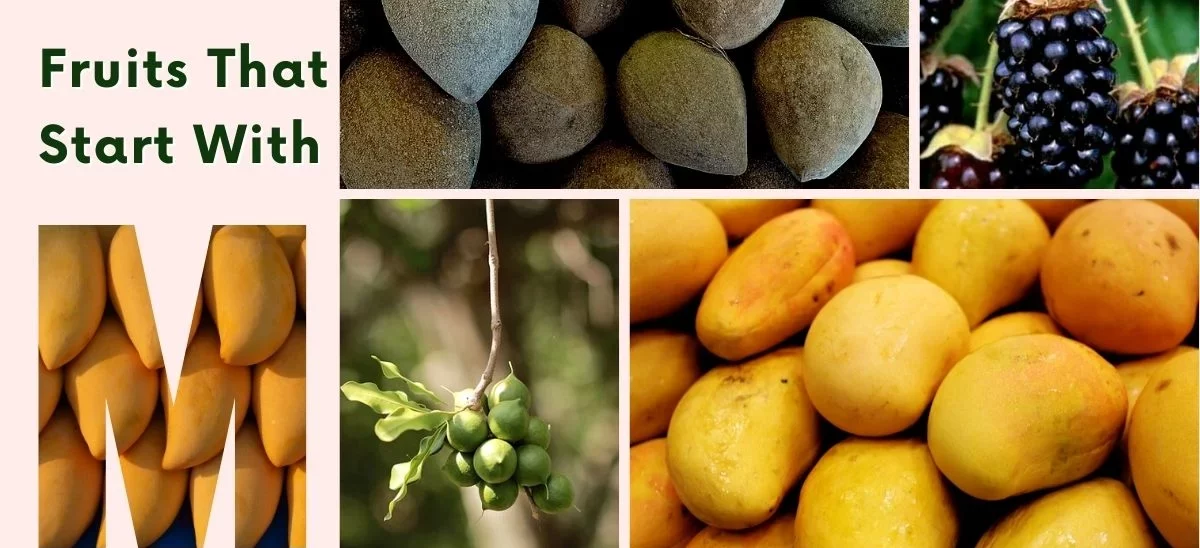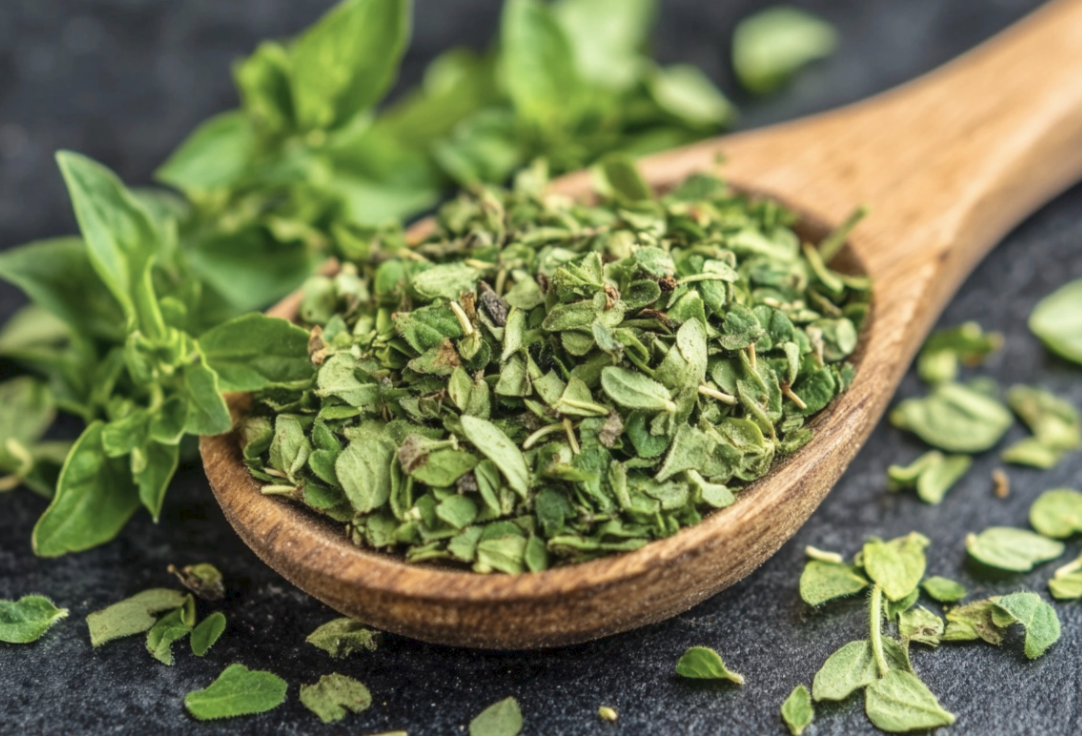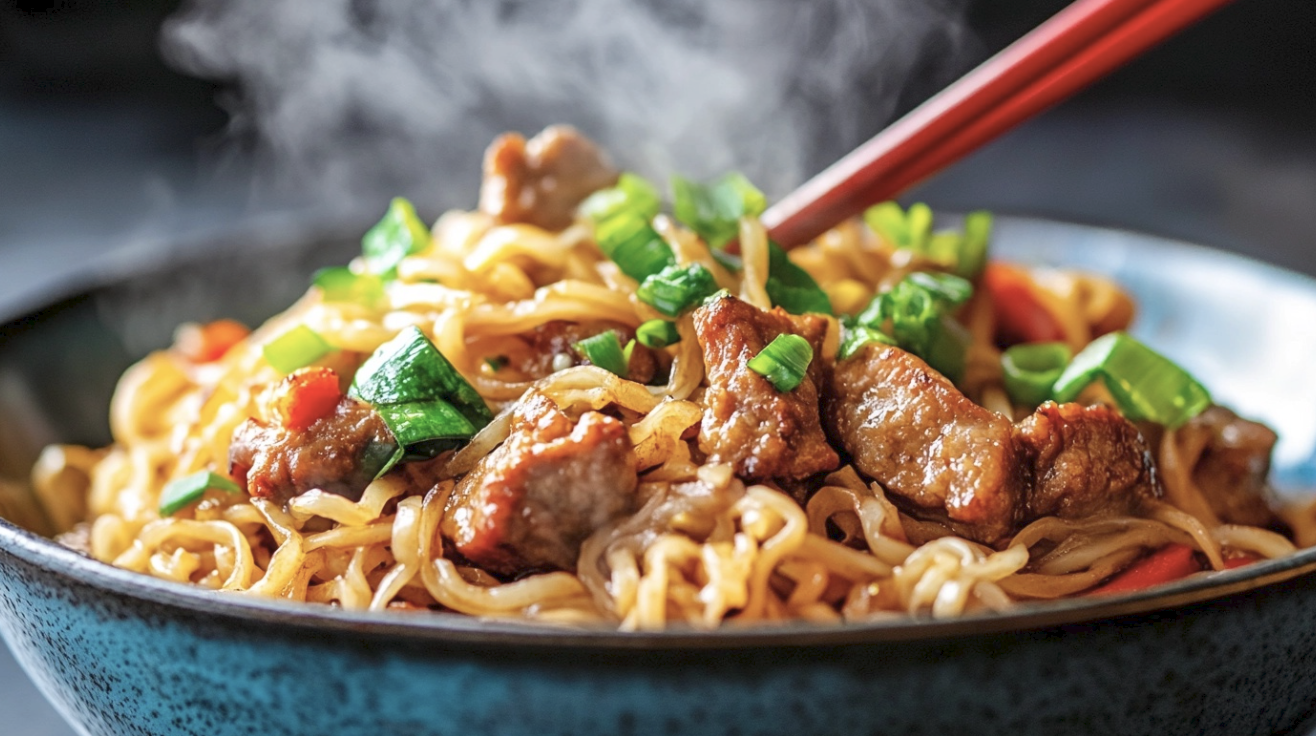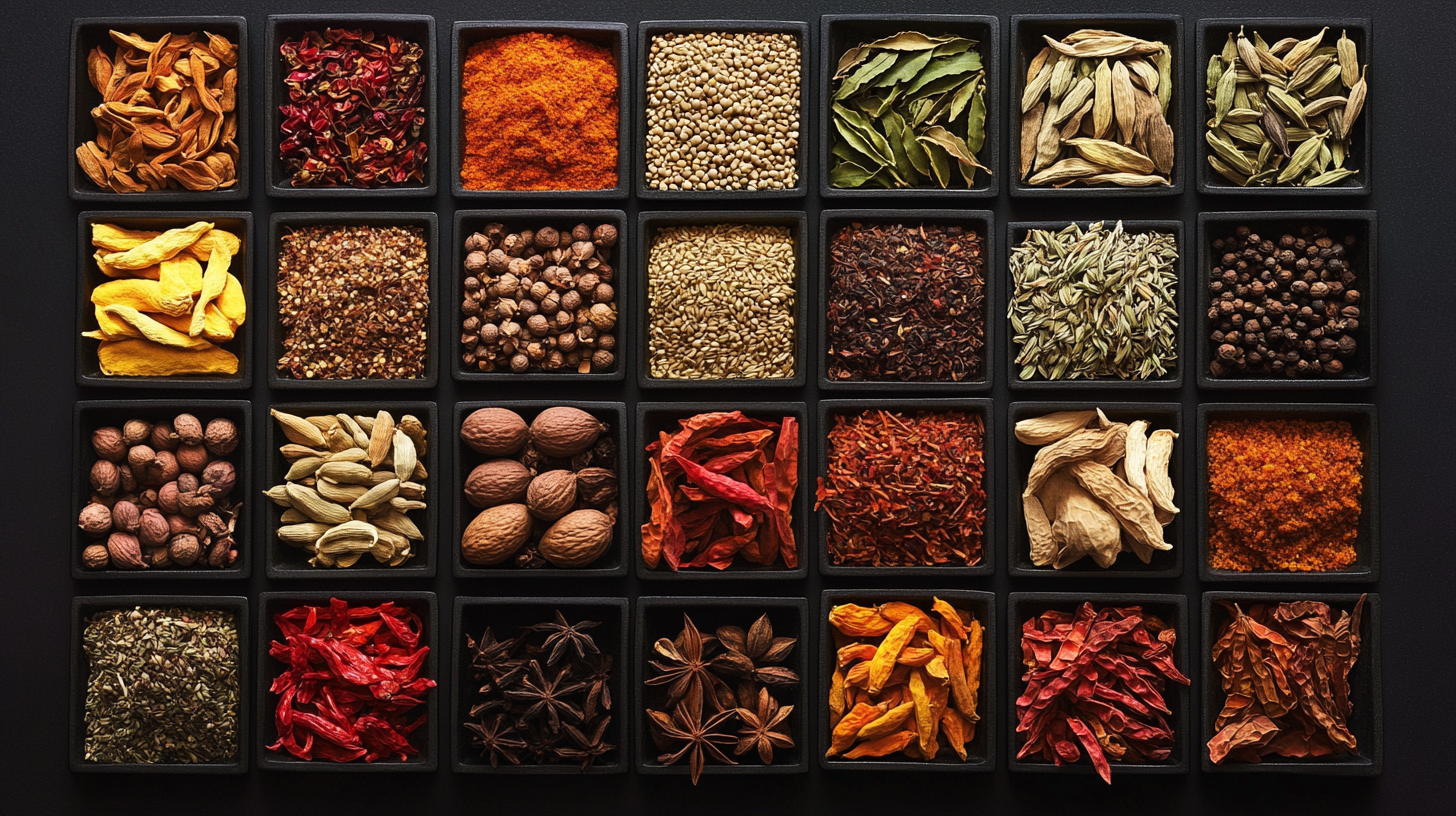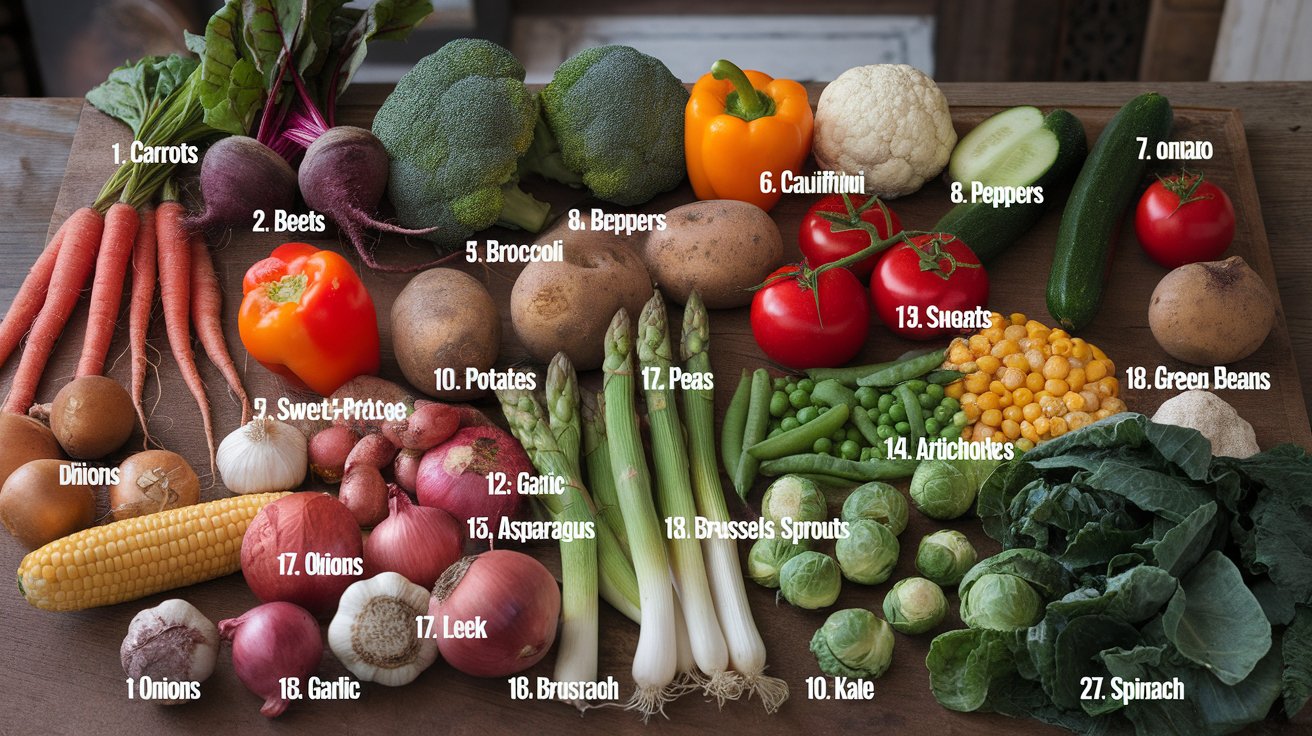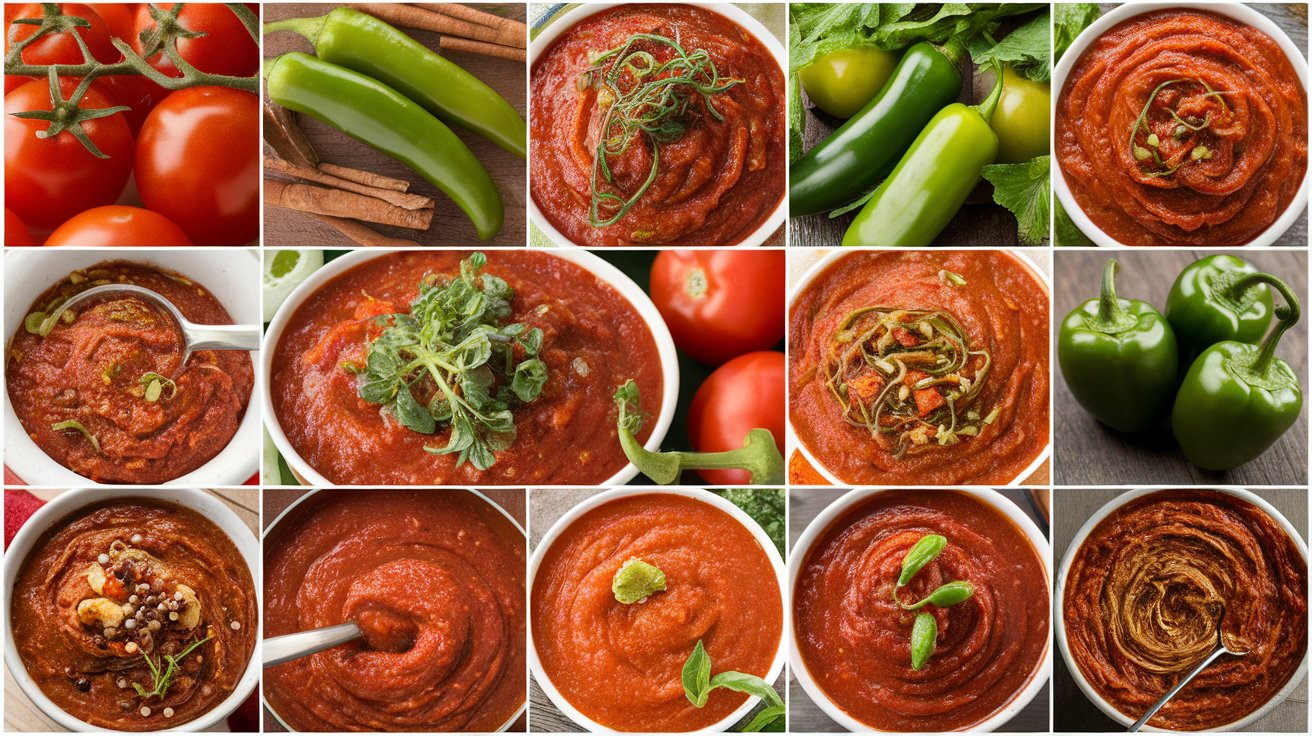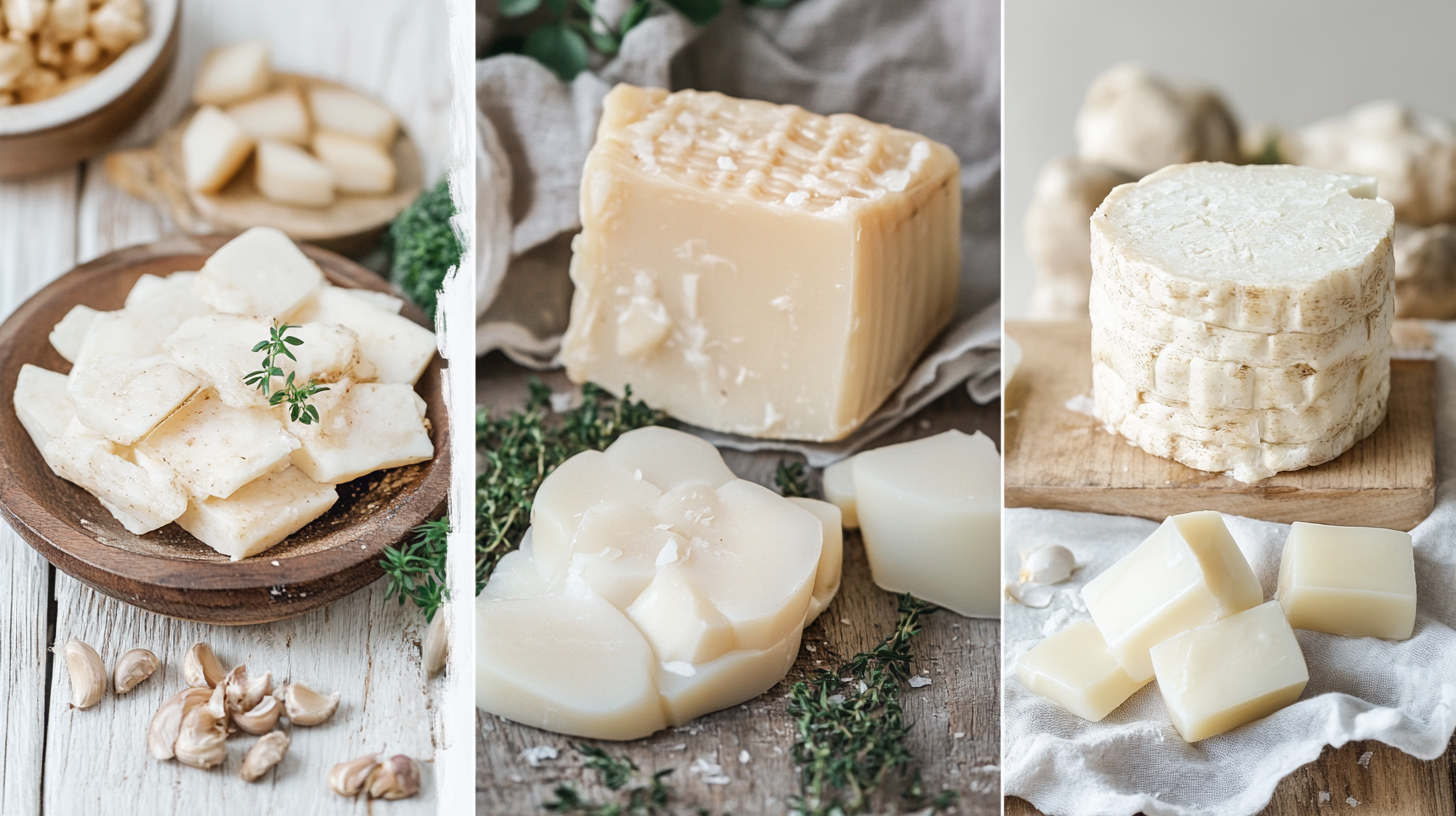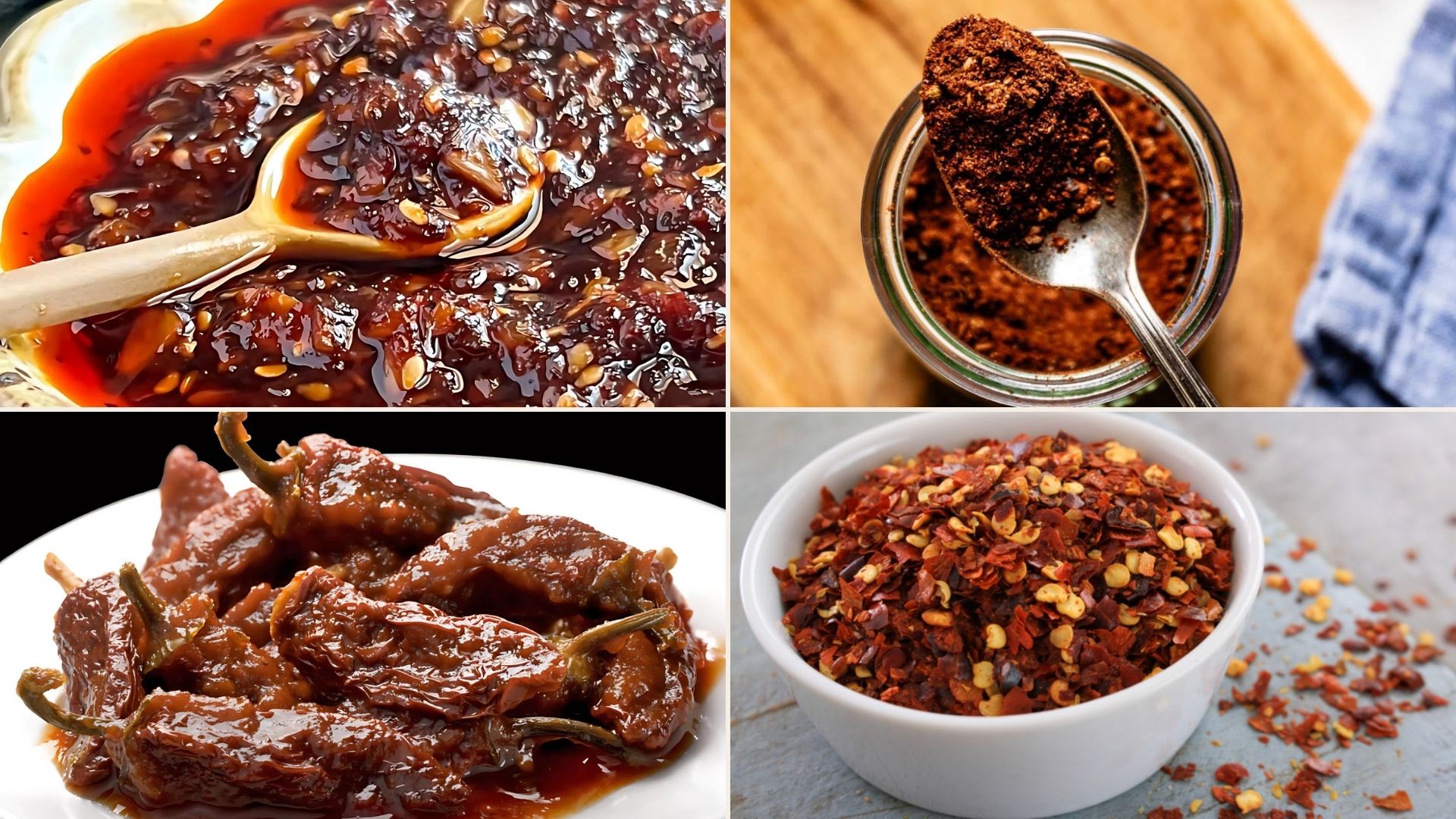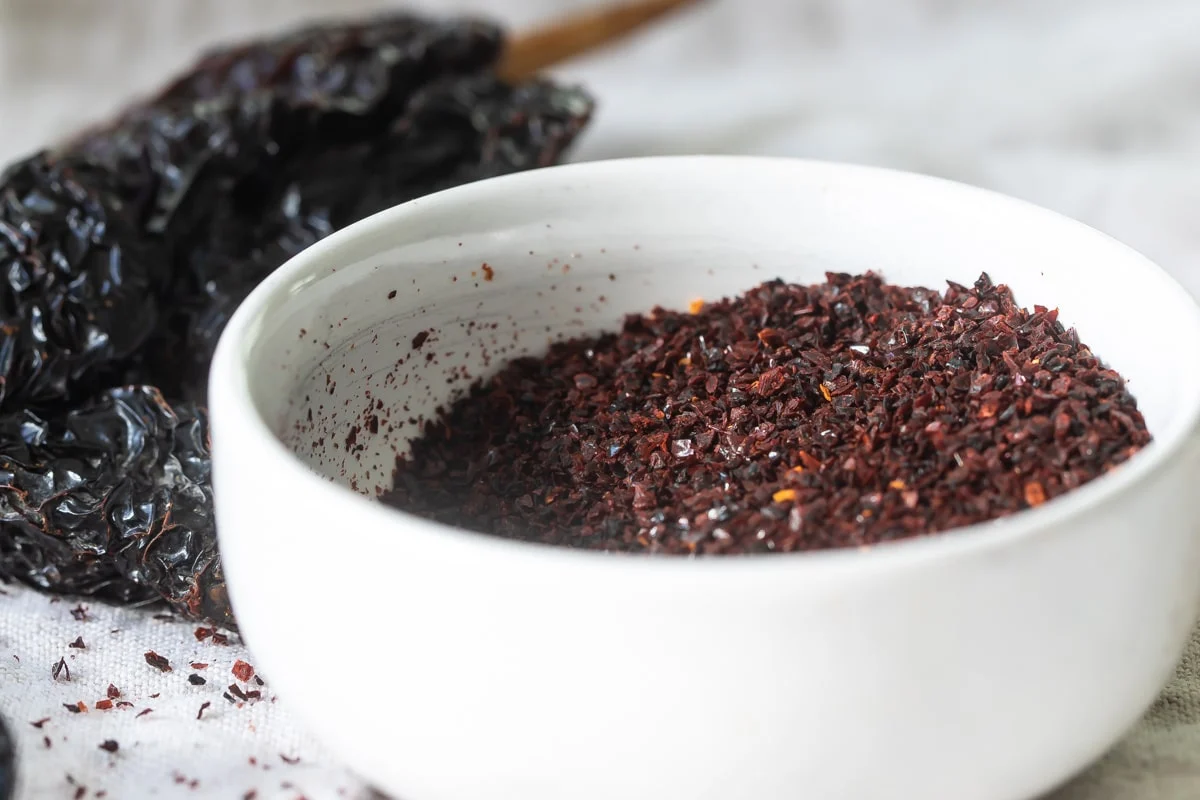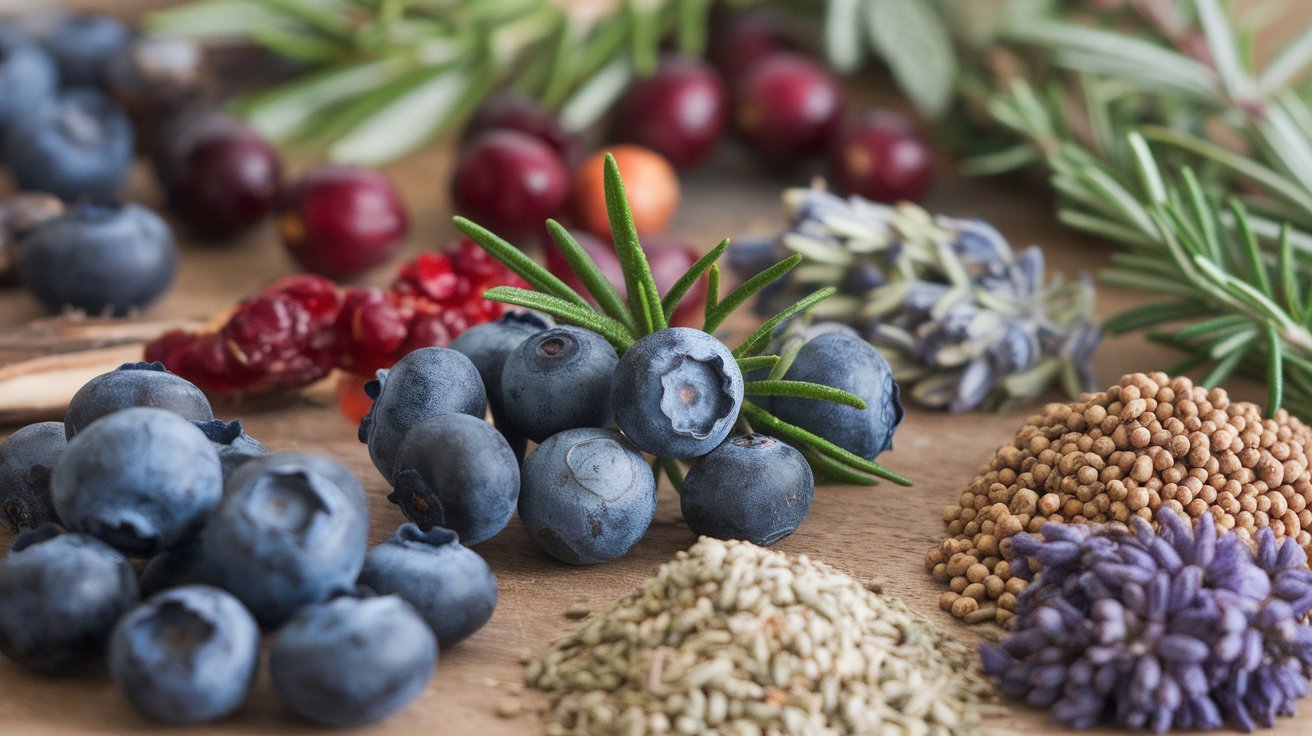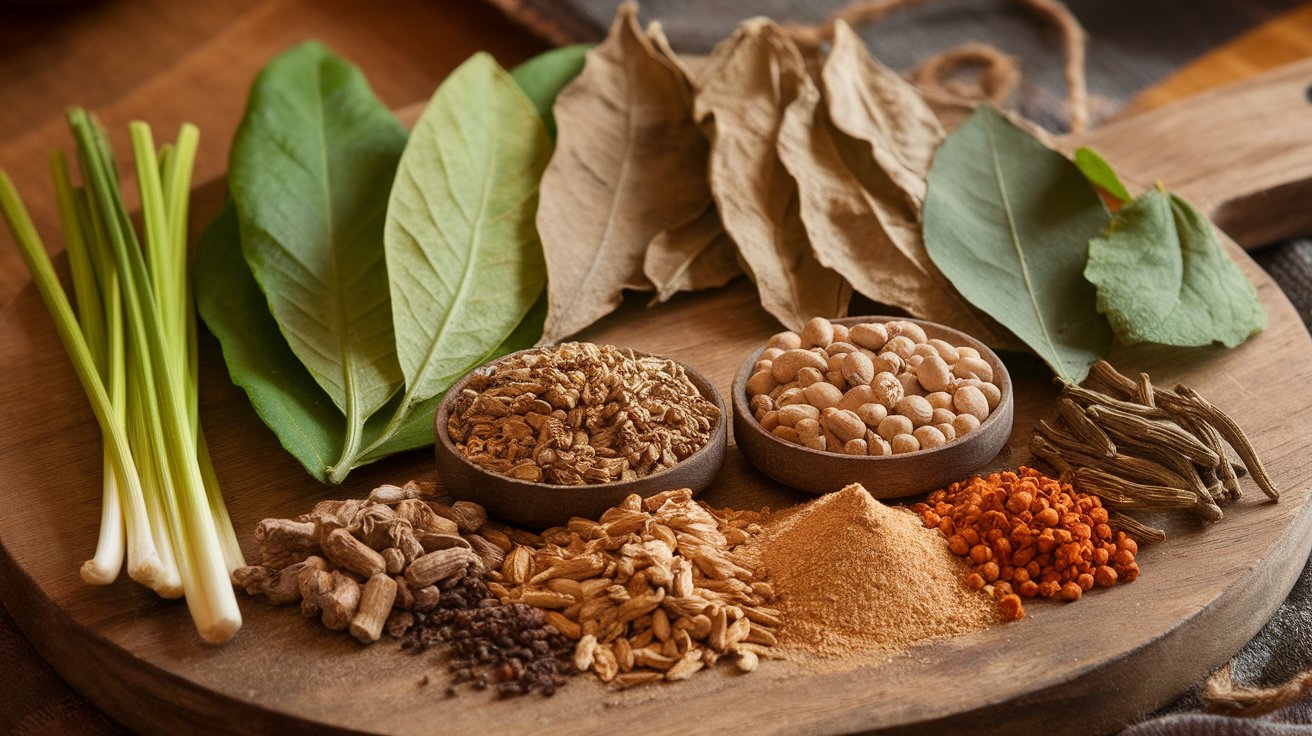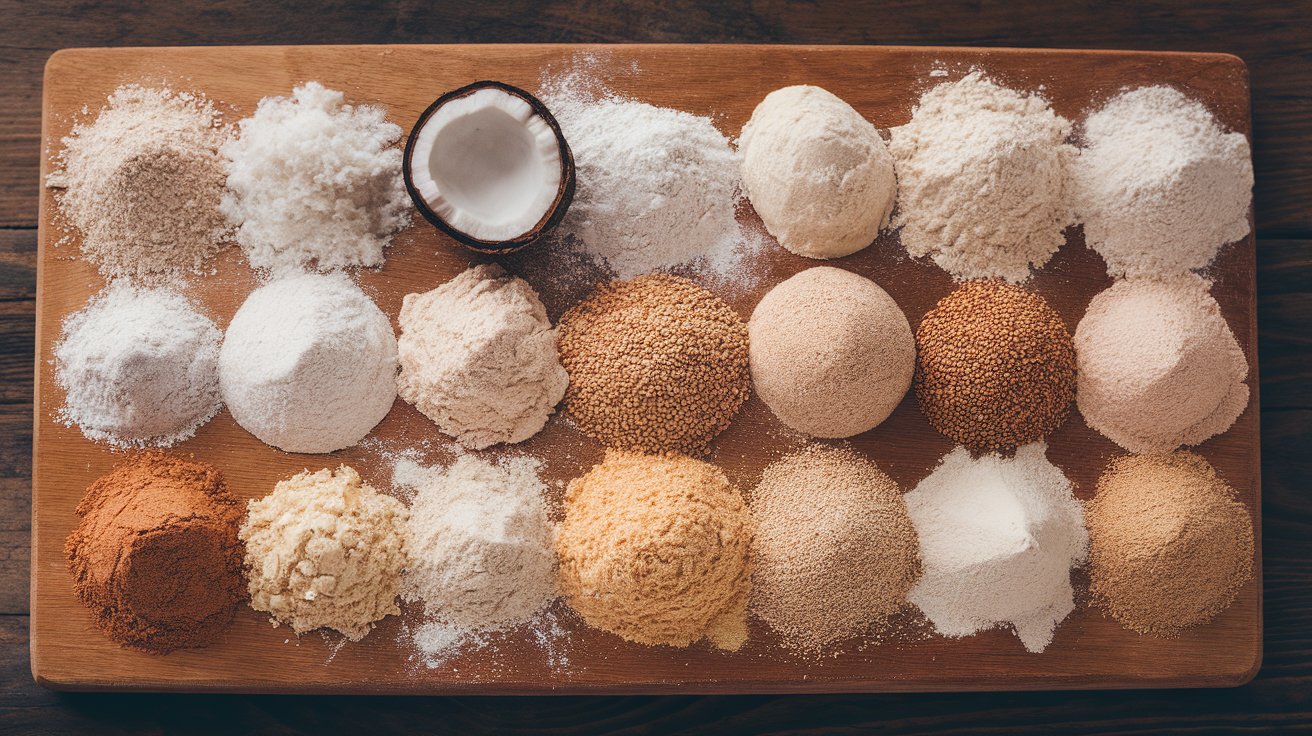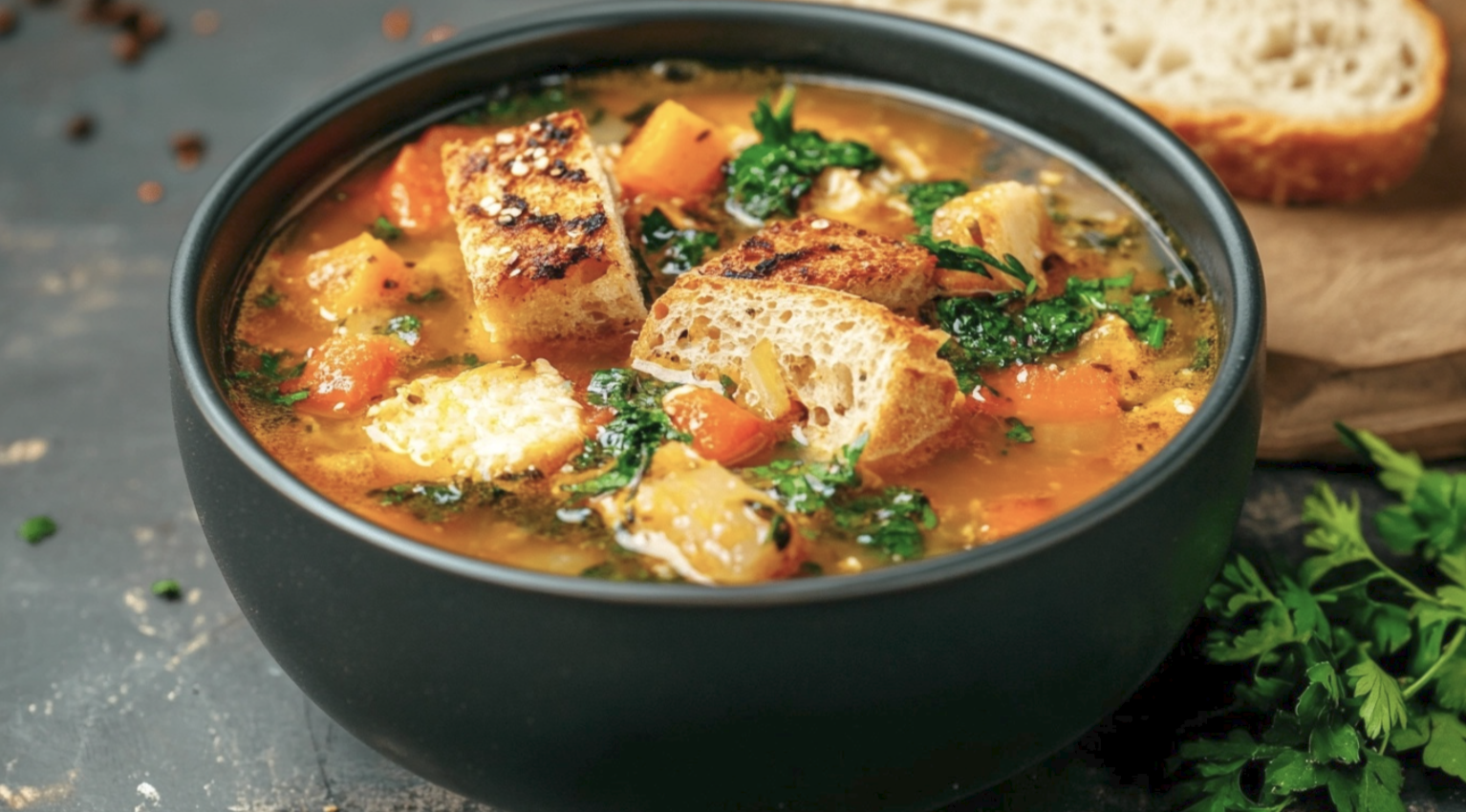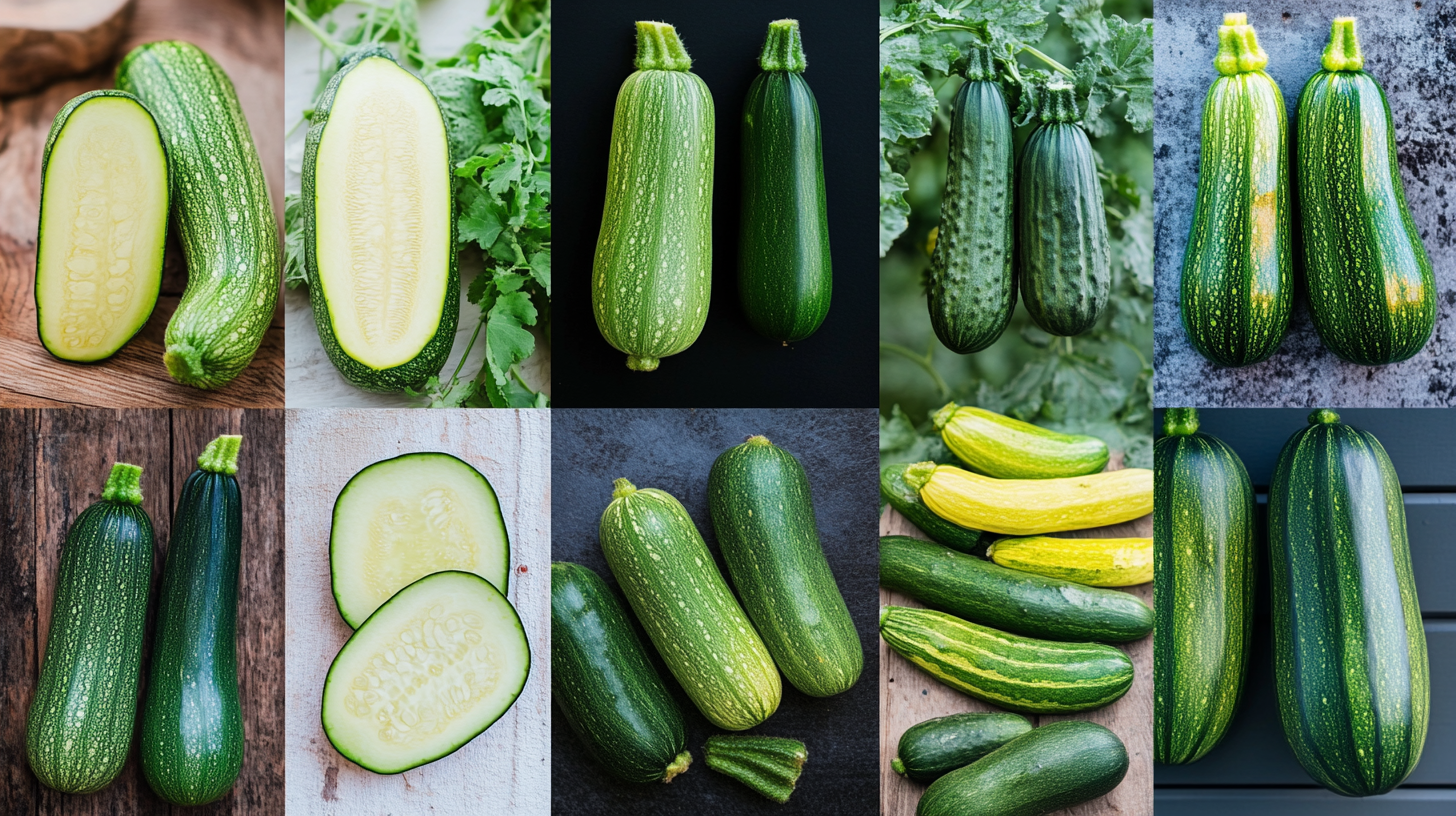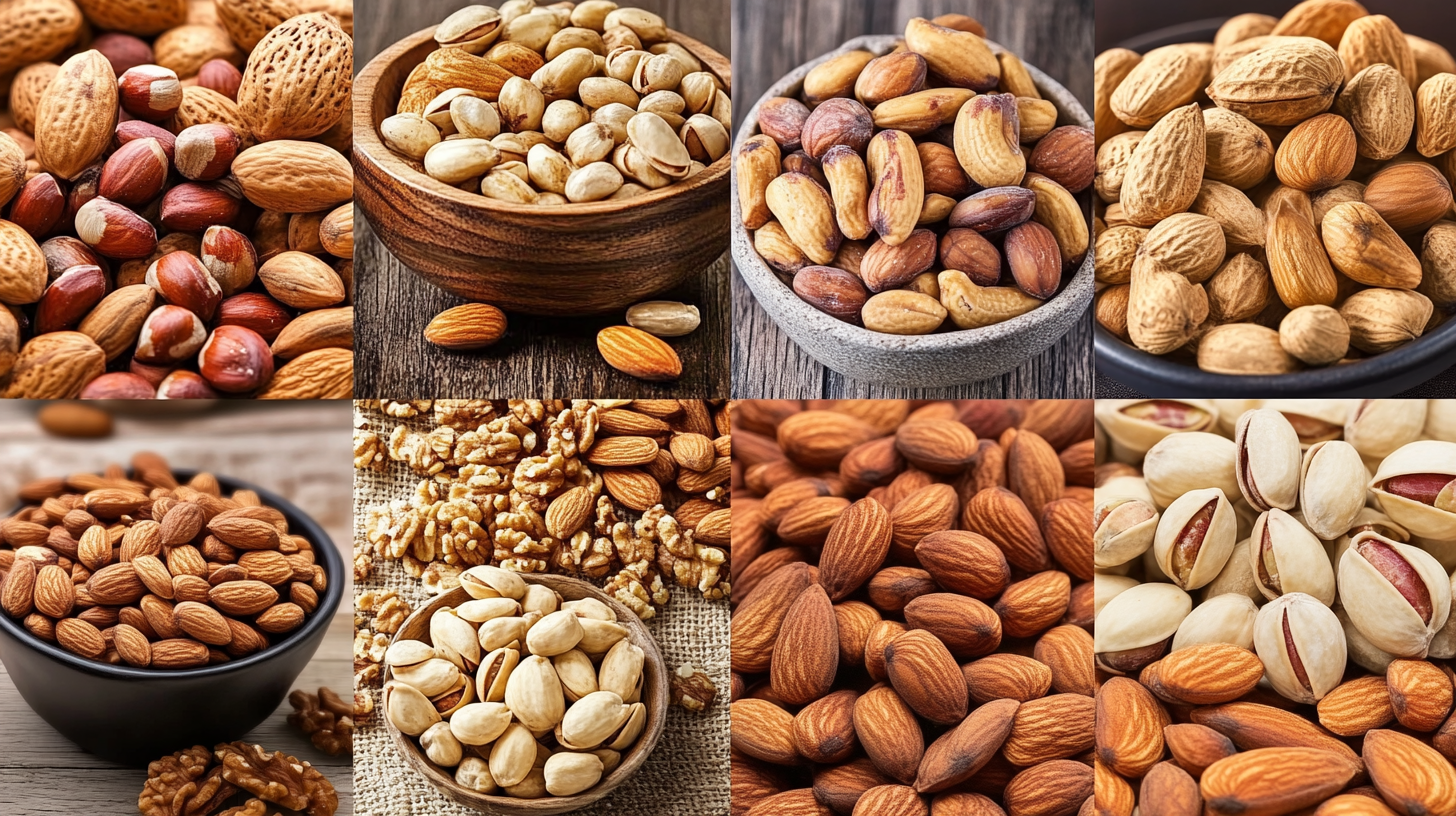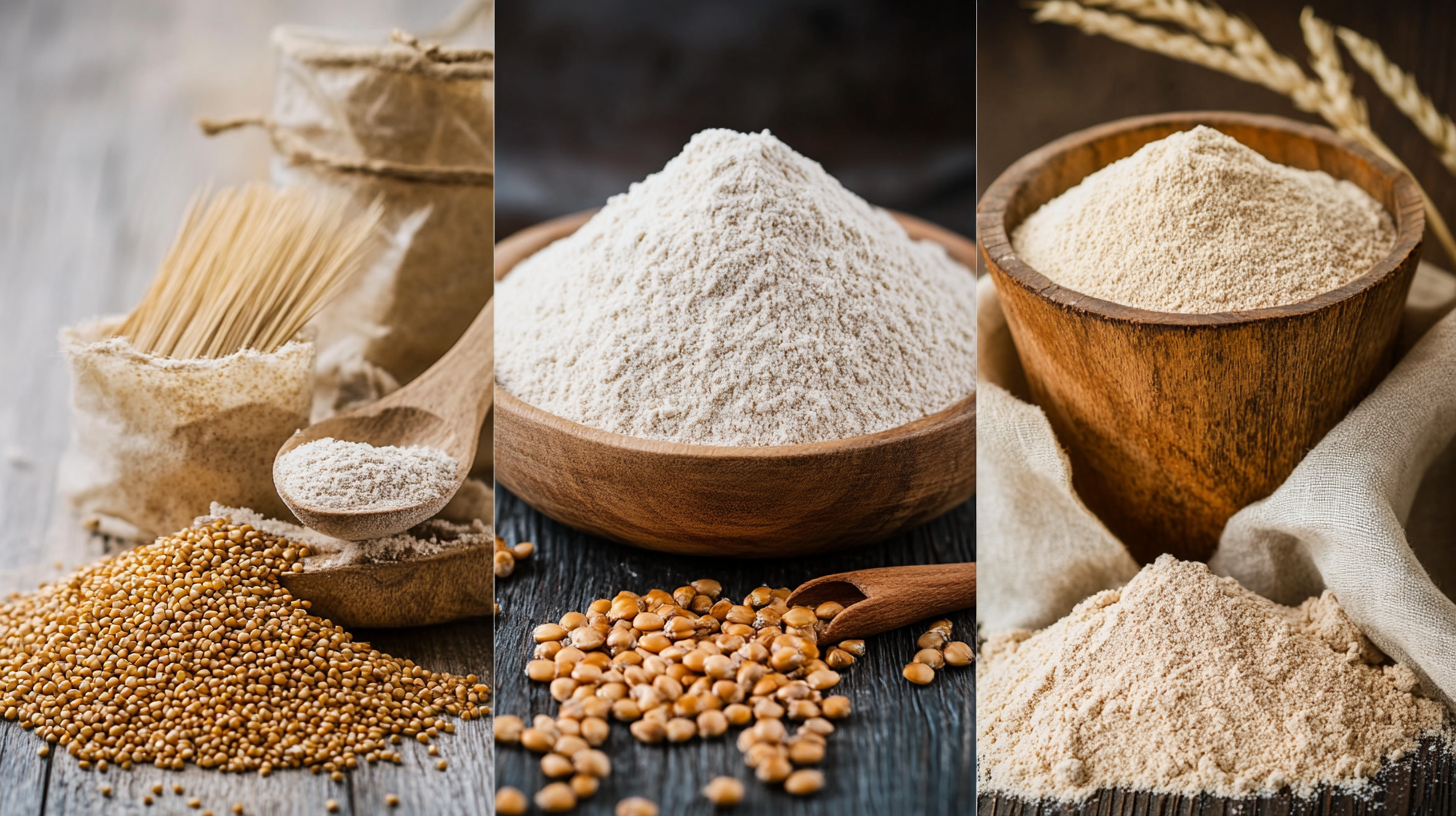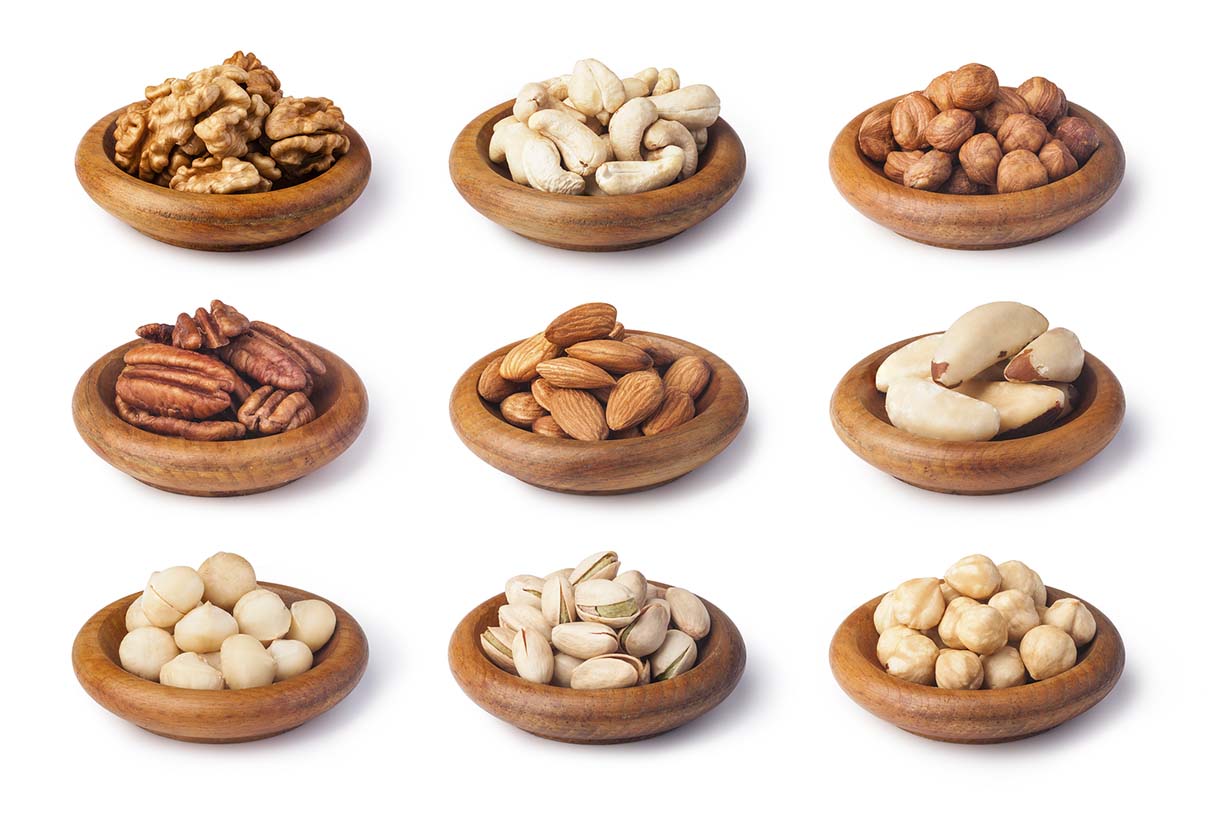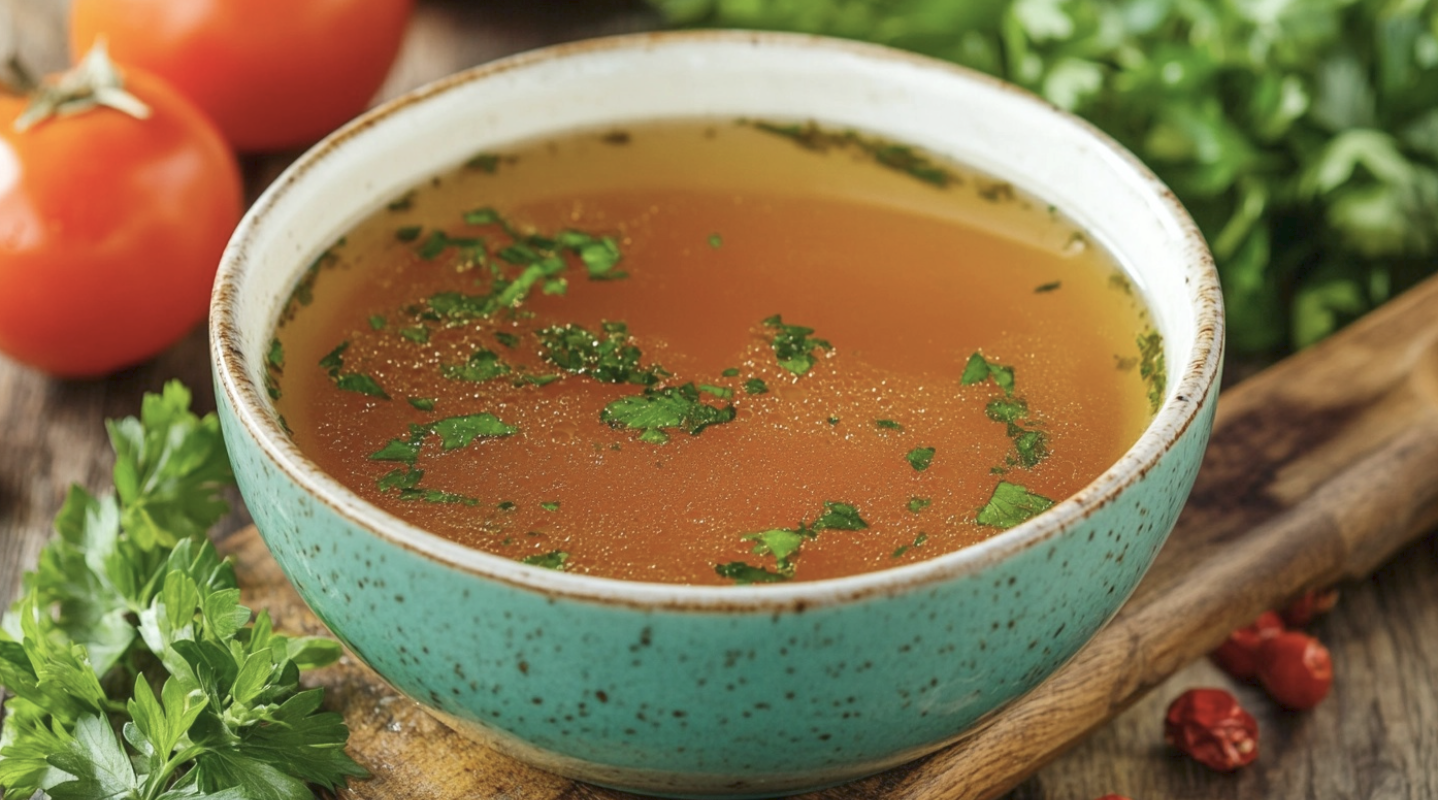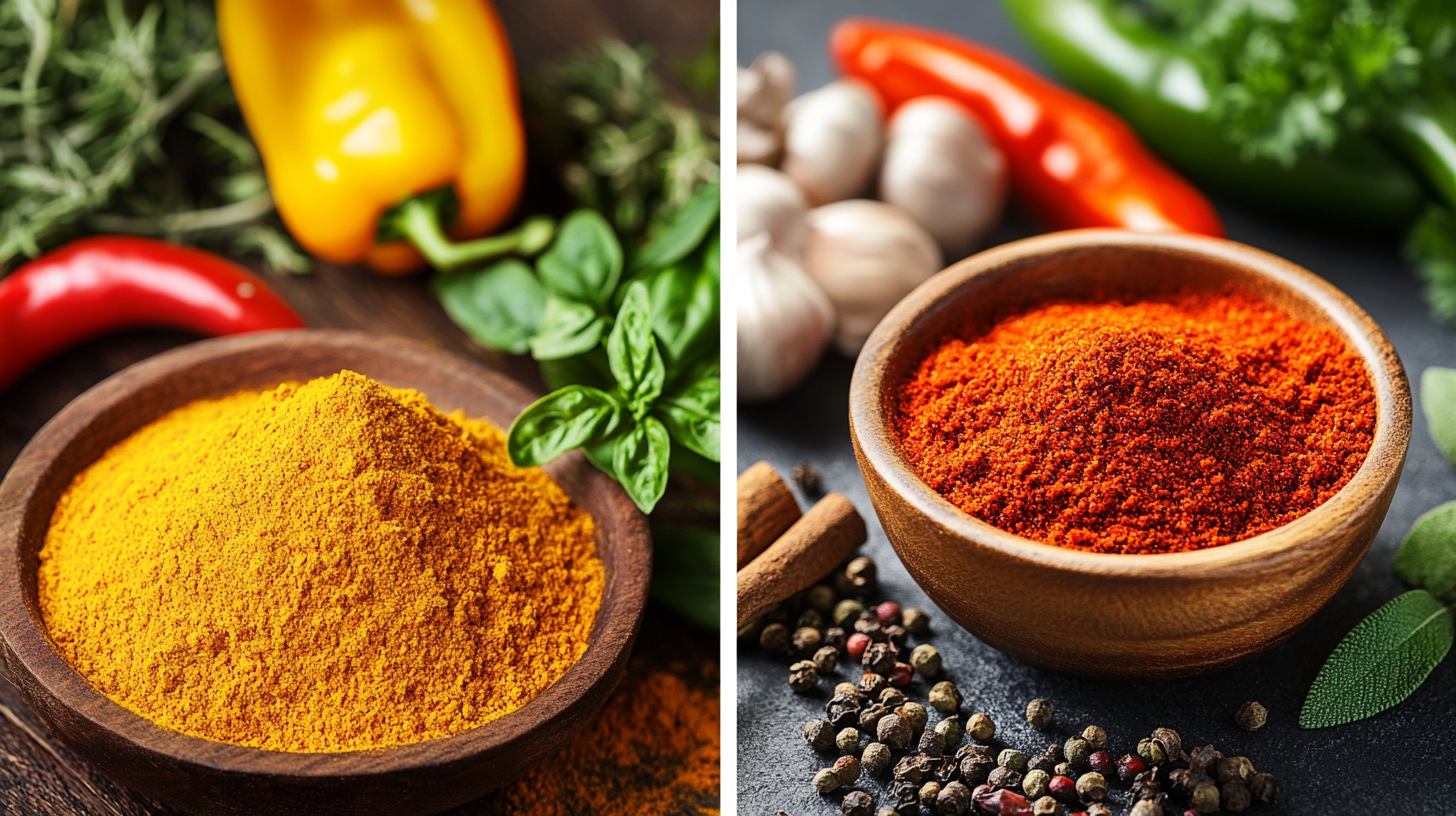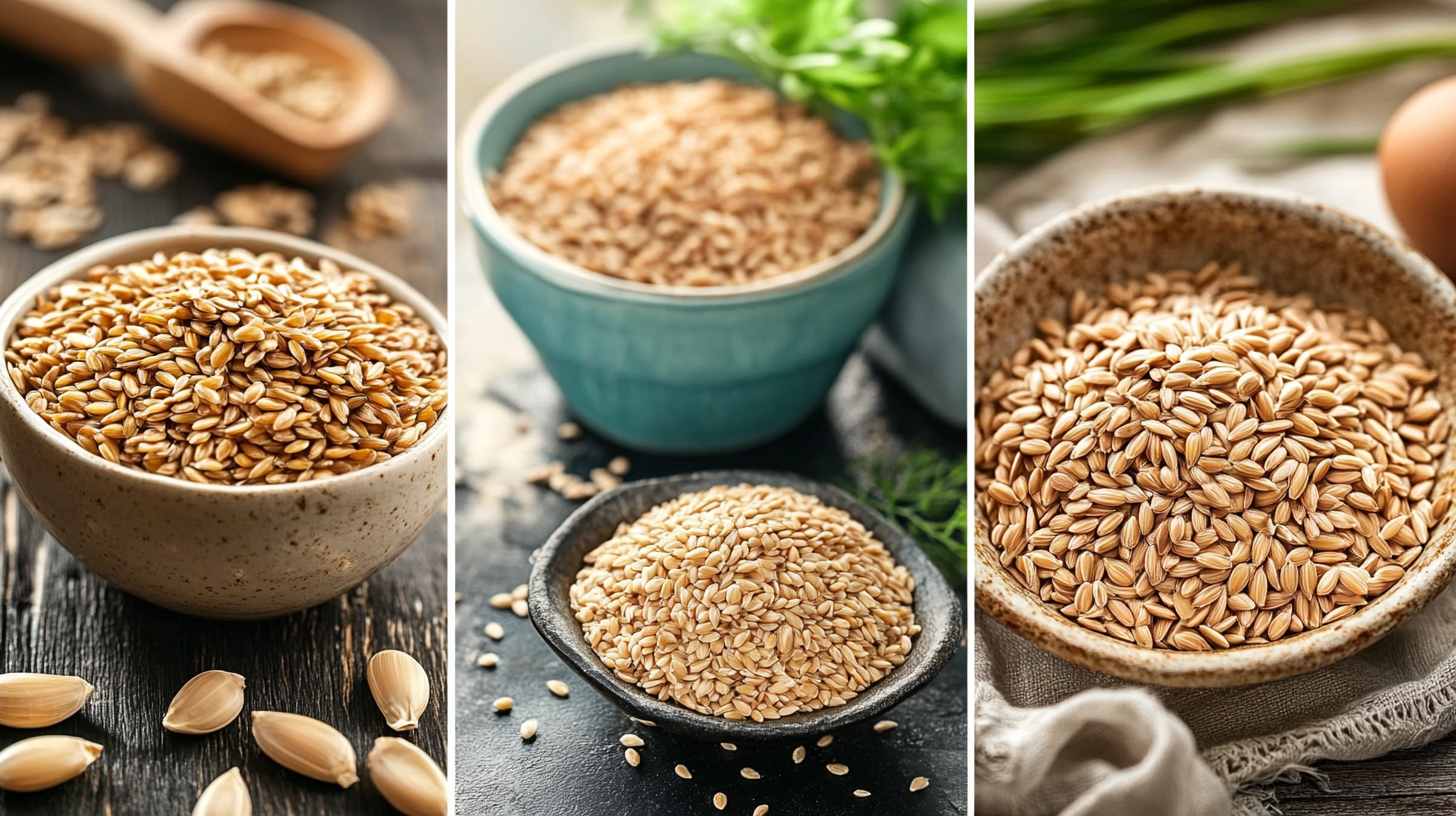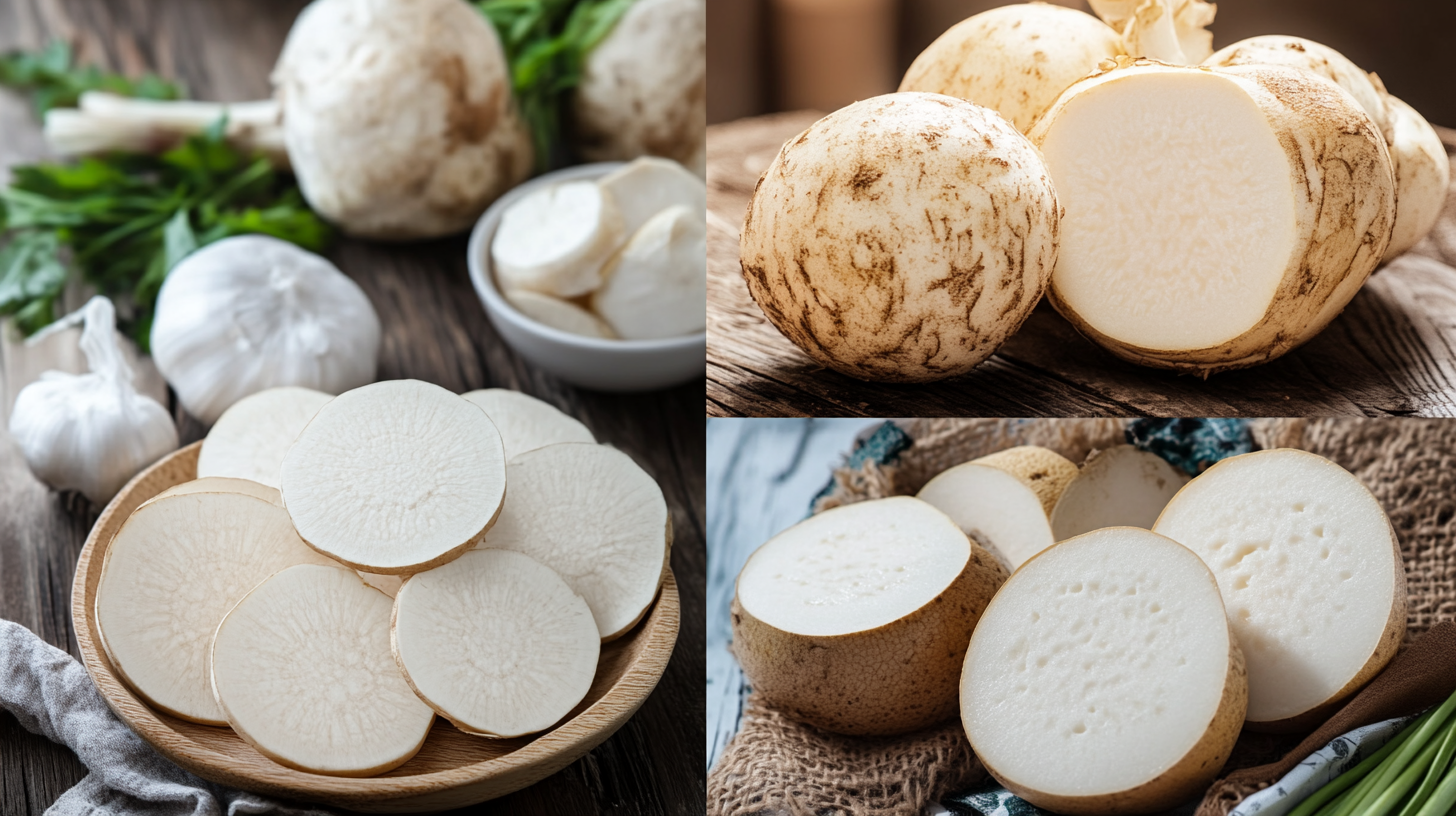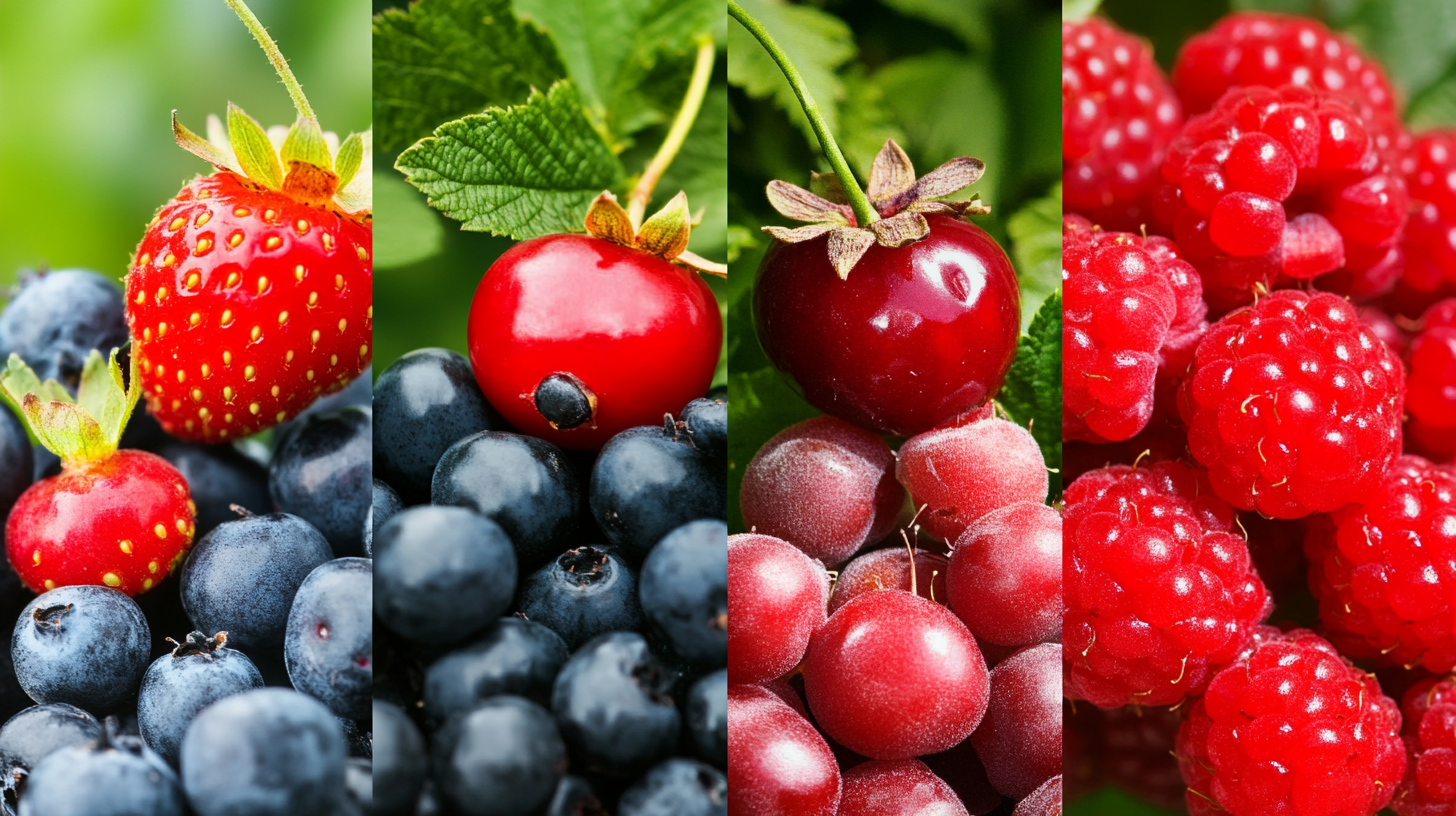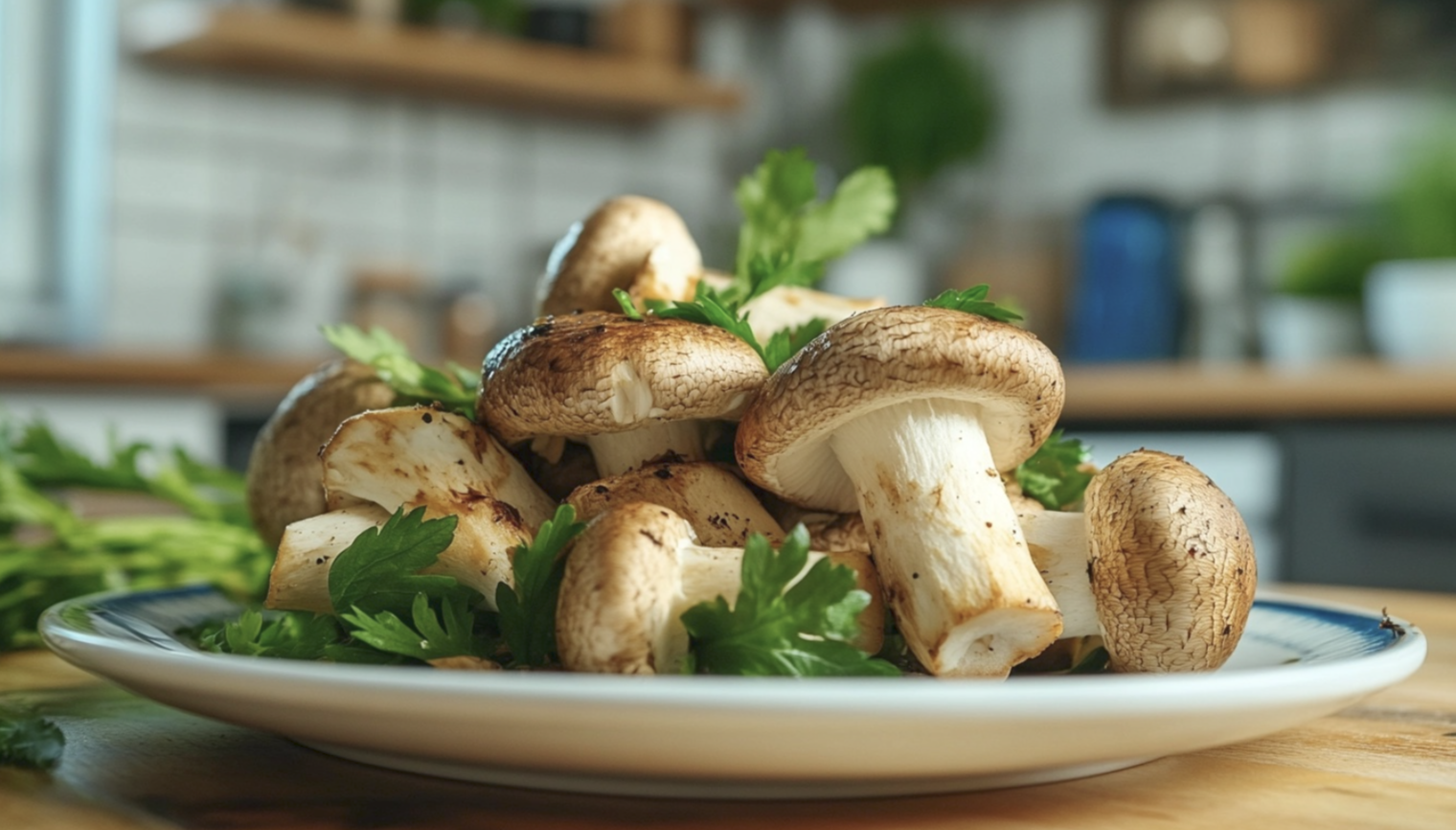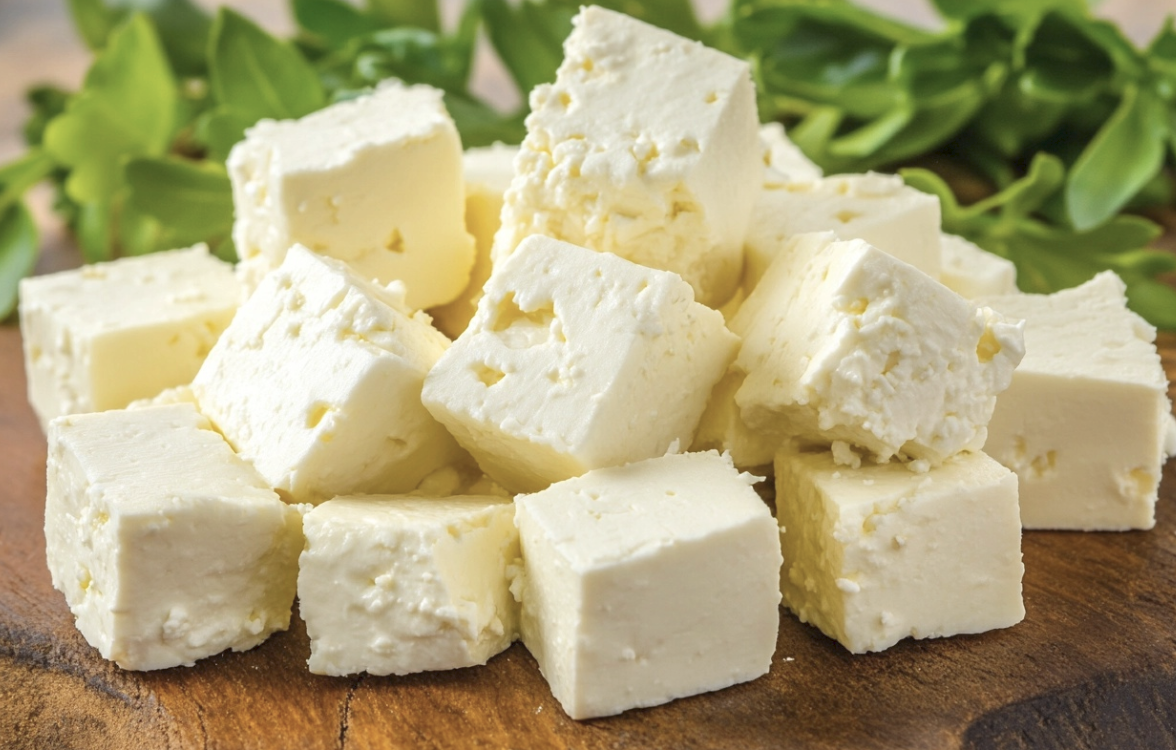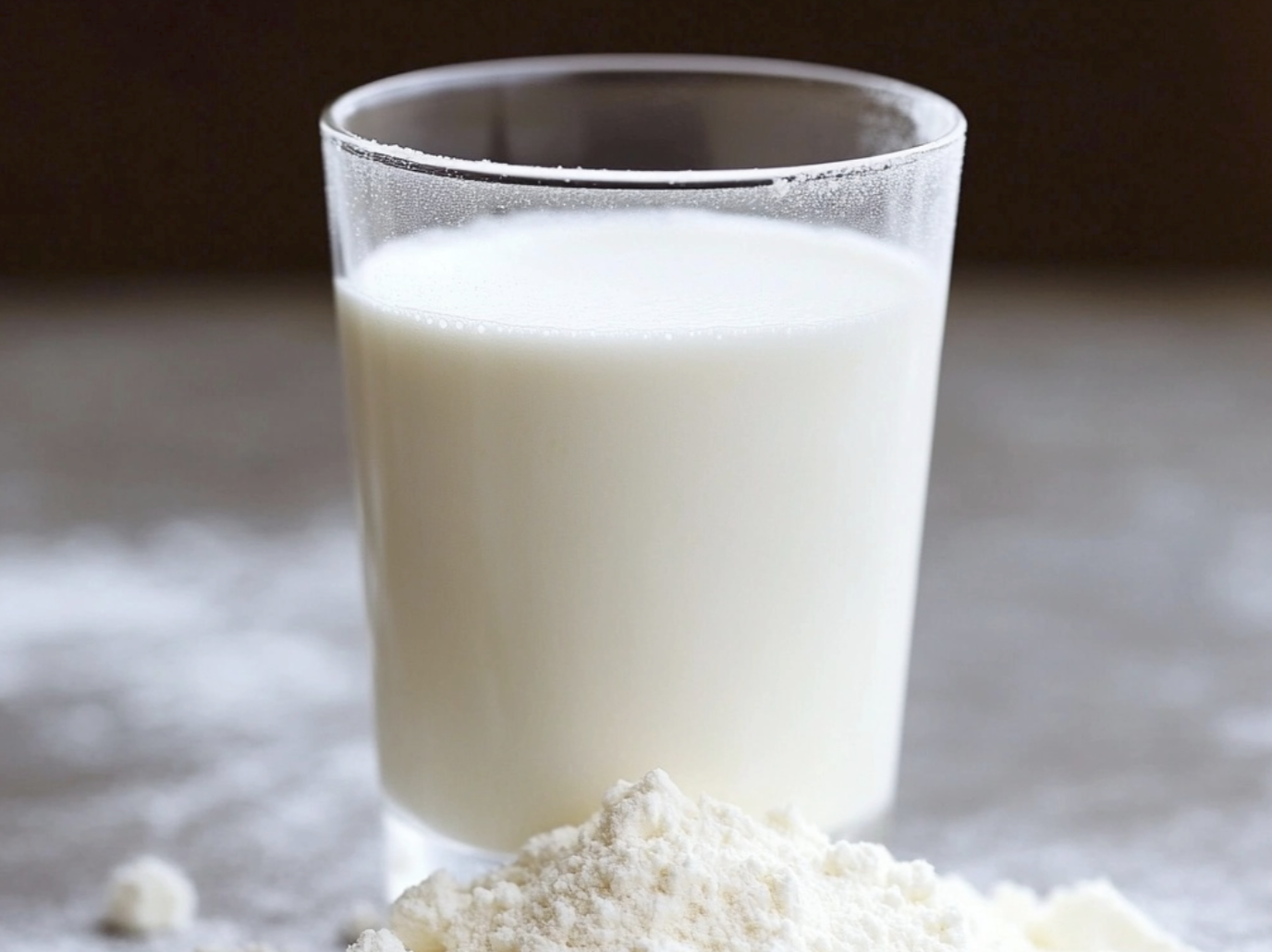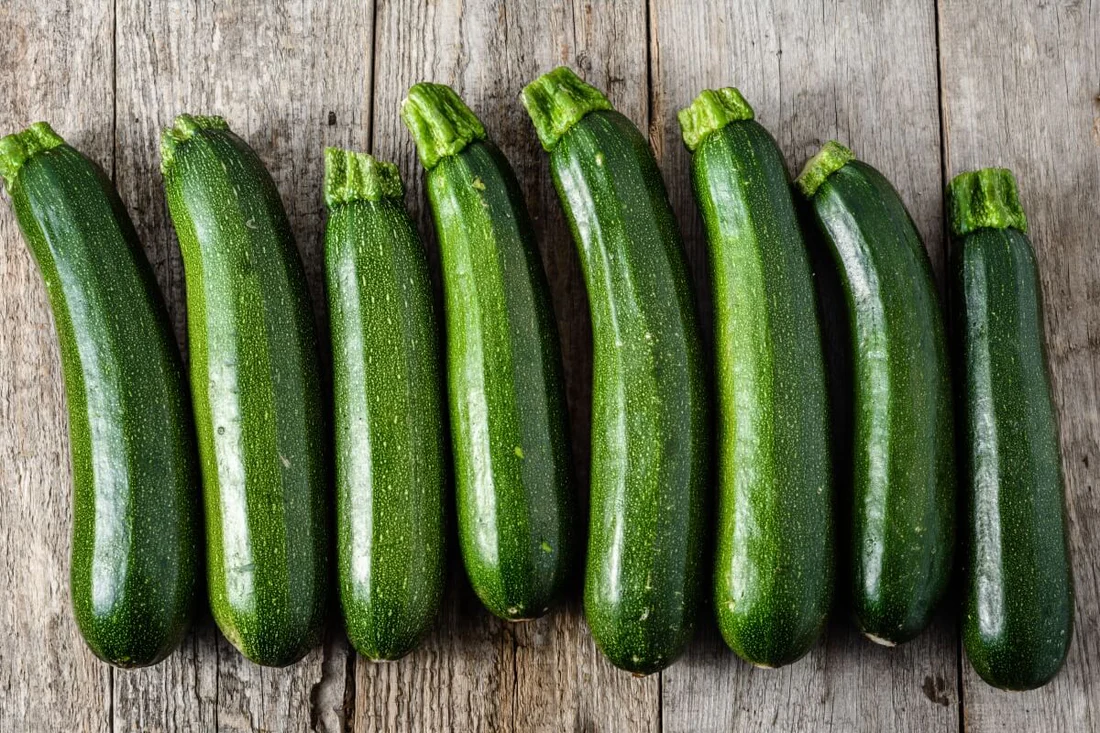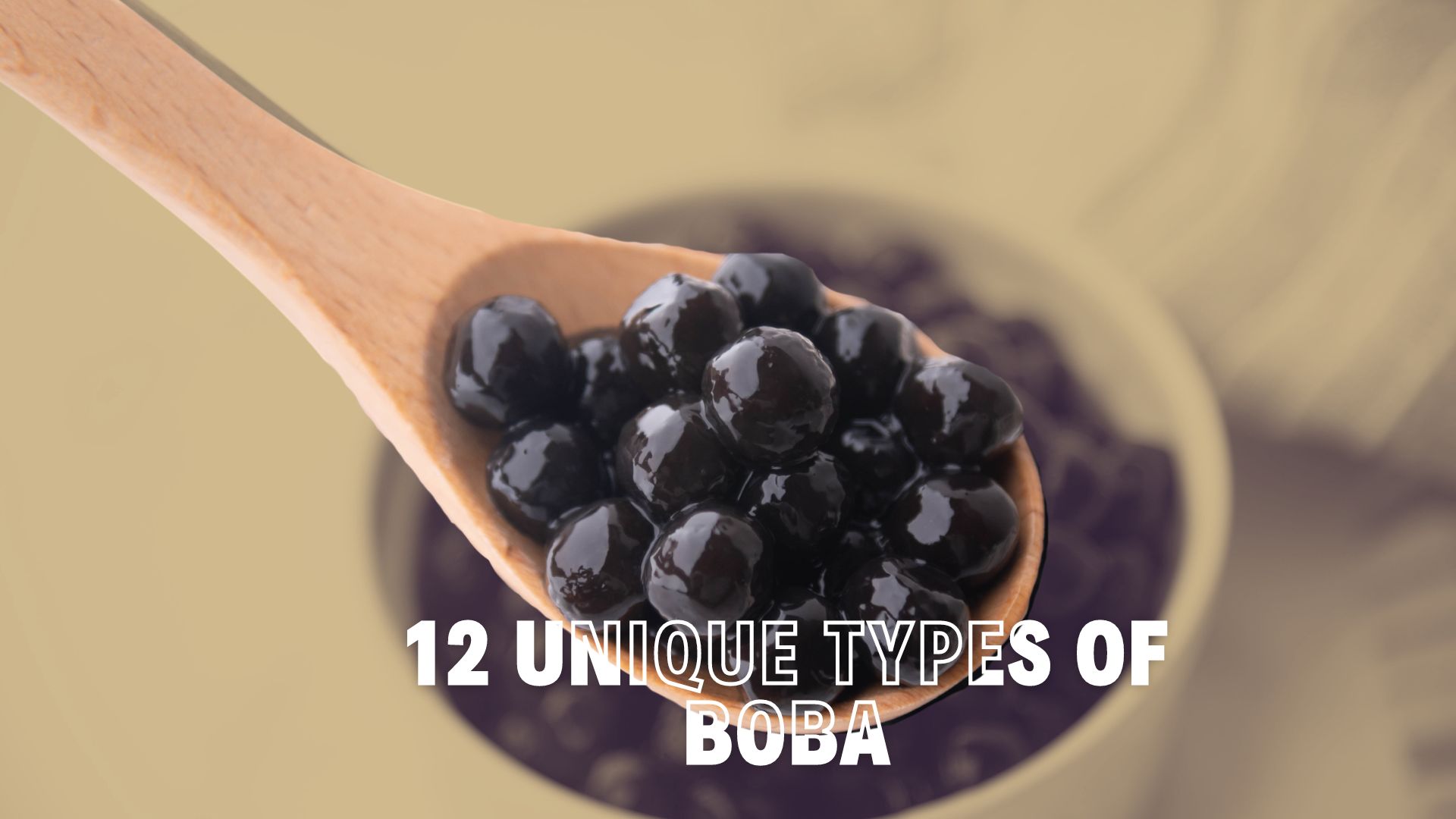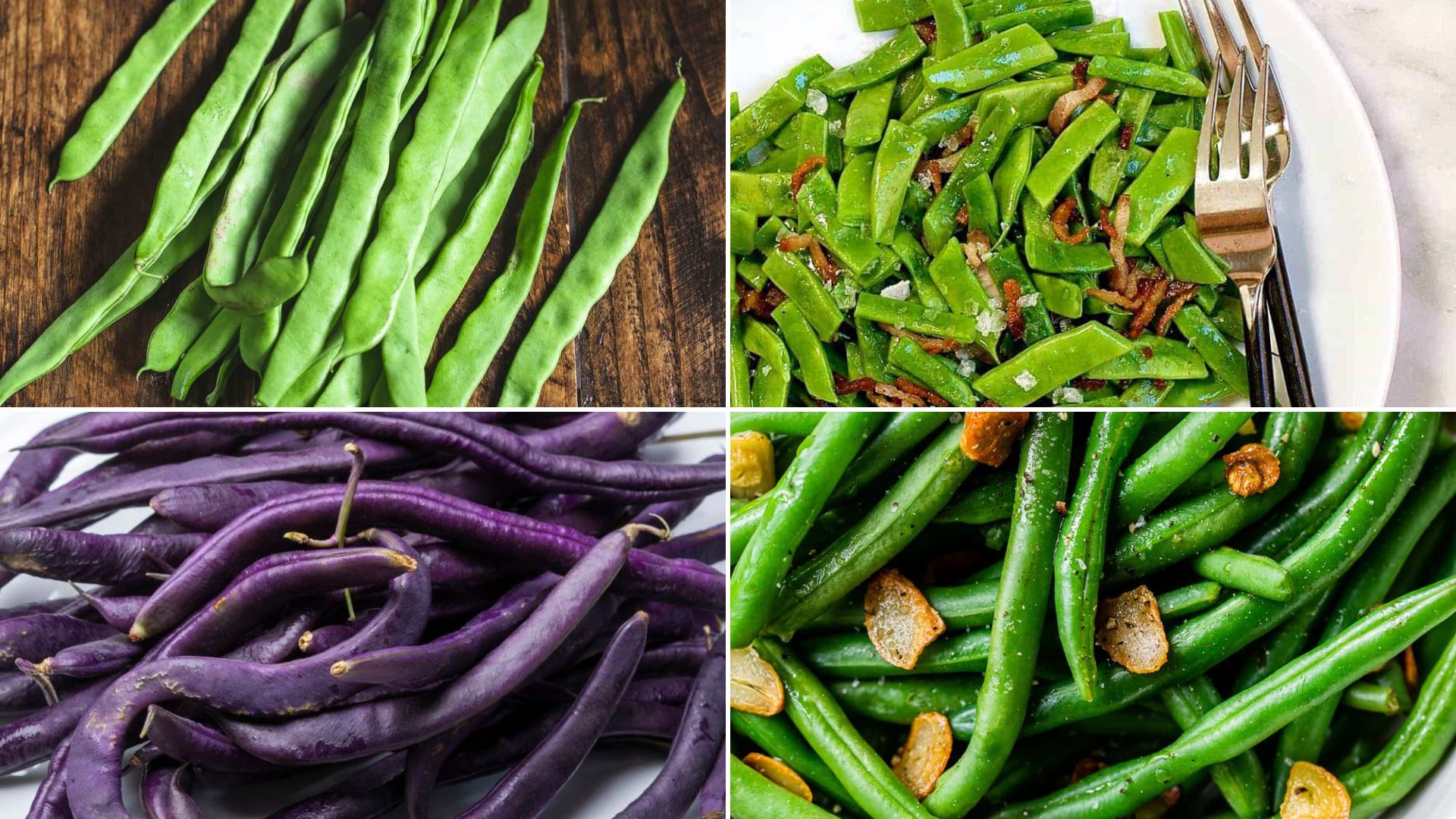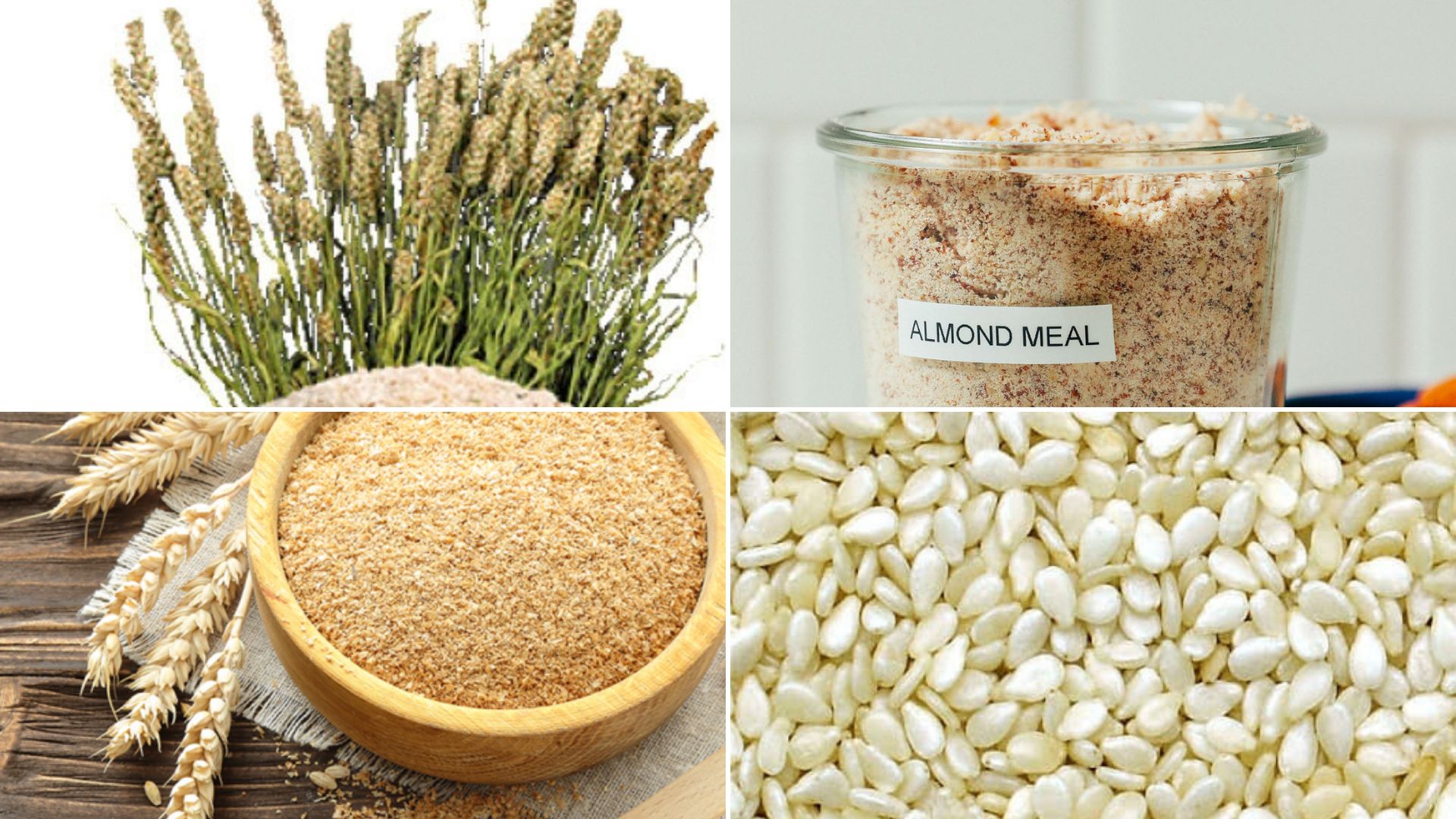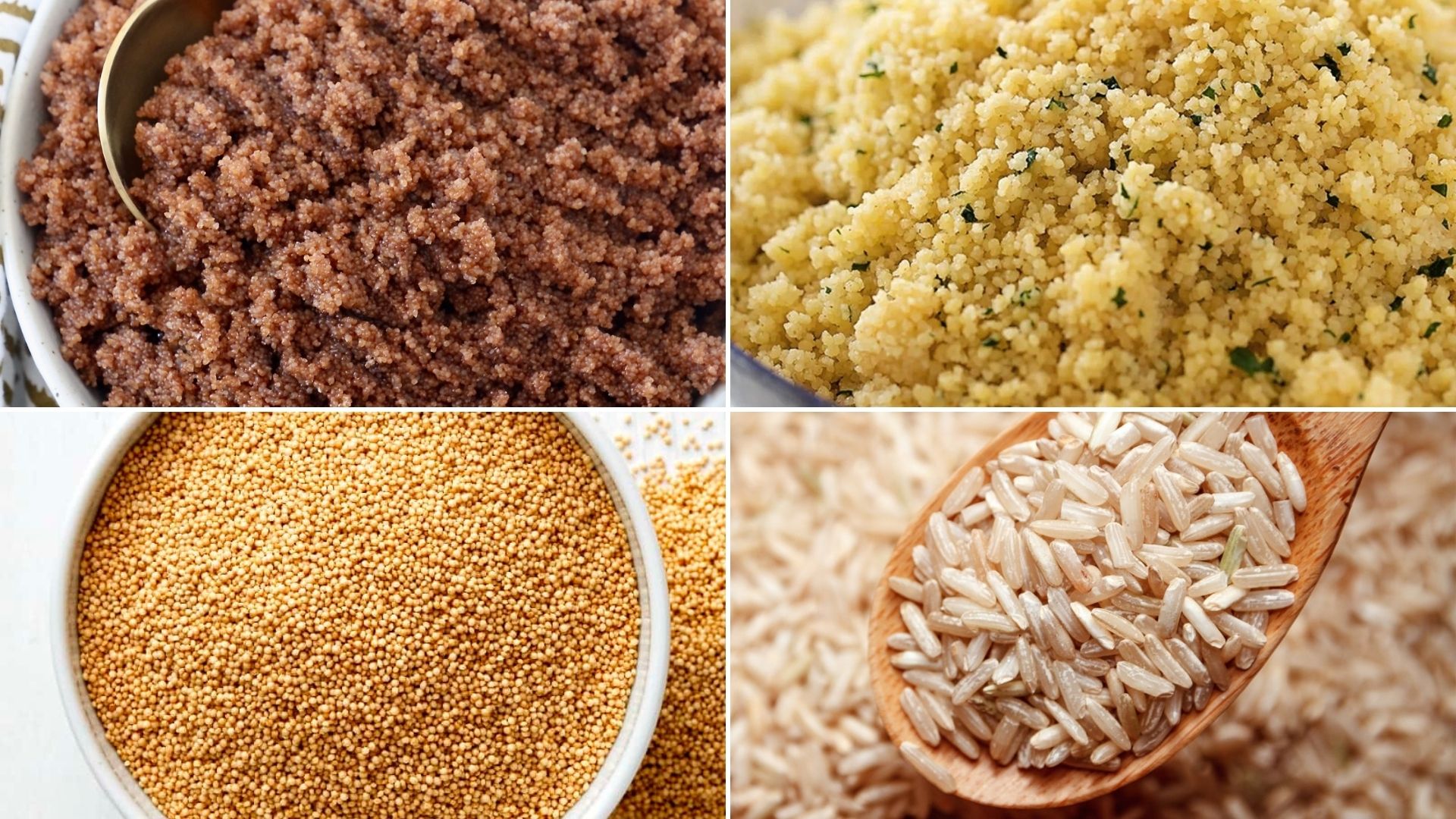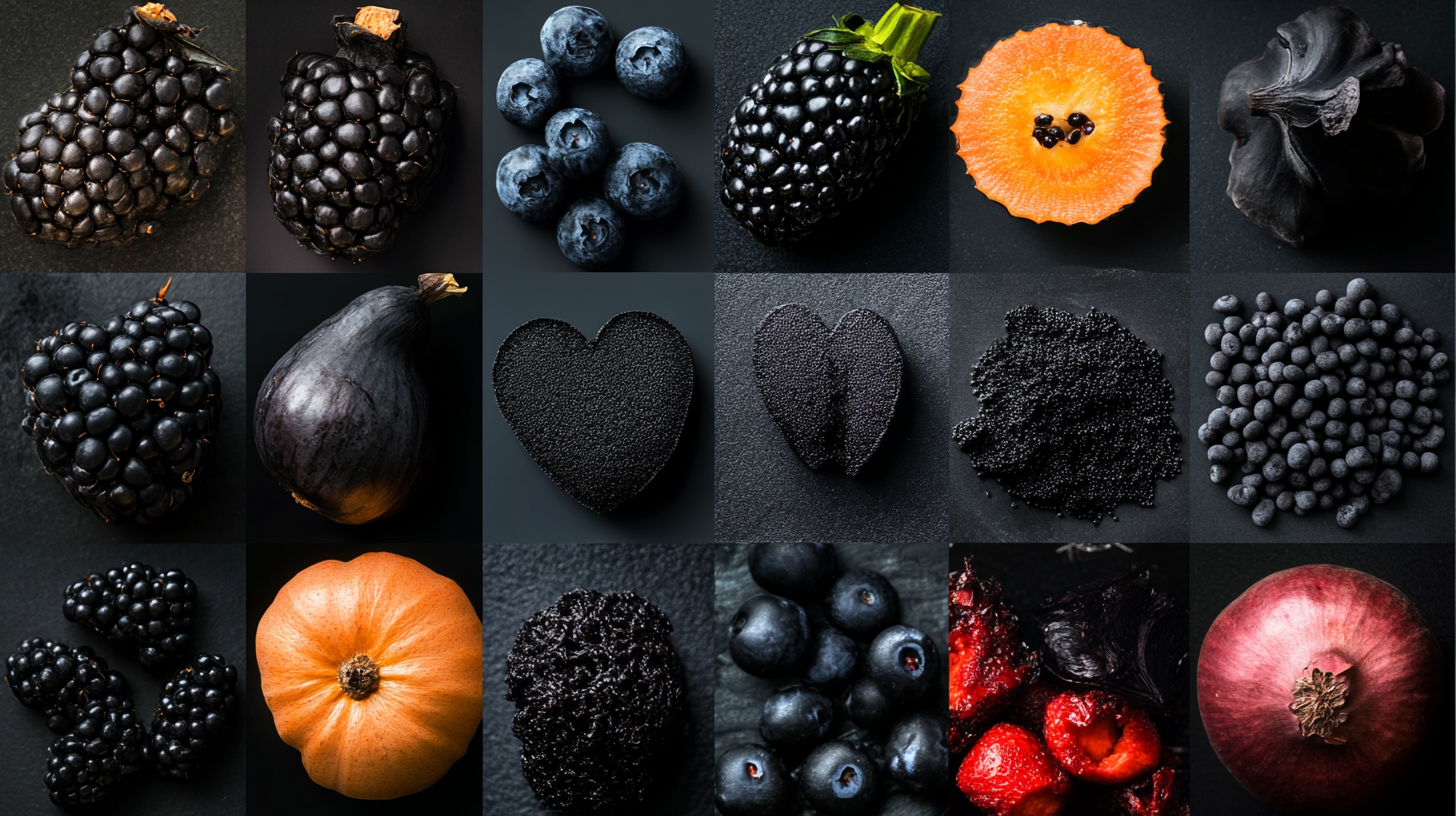
Black foods have been gaining popularity in recent years, not only for their striking appearance but also for their impressive nutritional benefits.
From ancient grains like black rice to exotic fruits like black sapote, these dark-hued ingredients offer a unique flavor profile and a wealth of vitamins and antioxidants.
Black foods are a fantastic choice for adding more variety to your diet or trying something new.
In this list, we’ll explore 30 unique black foods, each offering its own taste and health benefits you won’t want to miss.
Unique Black Foods You Should Try
1. Blackberries
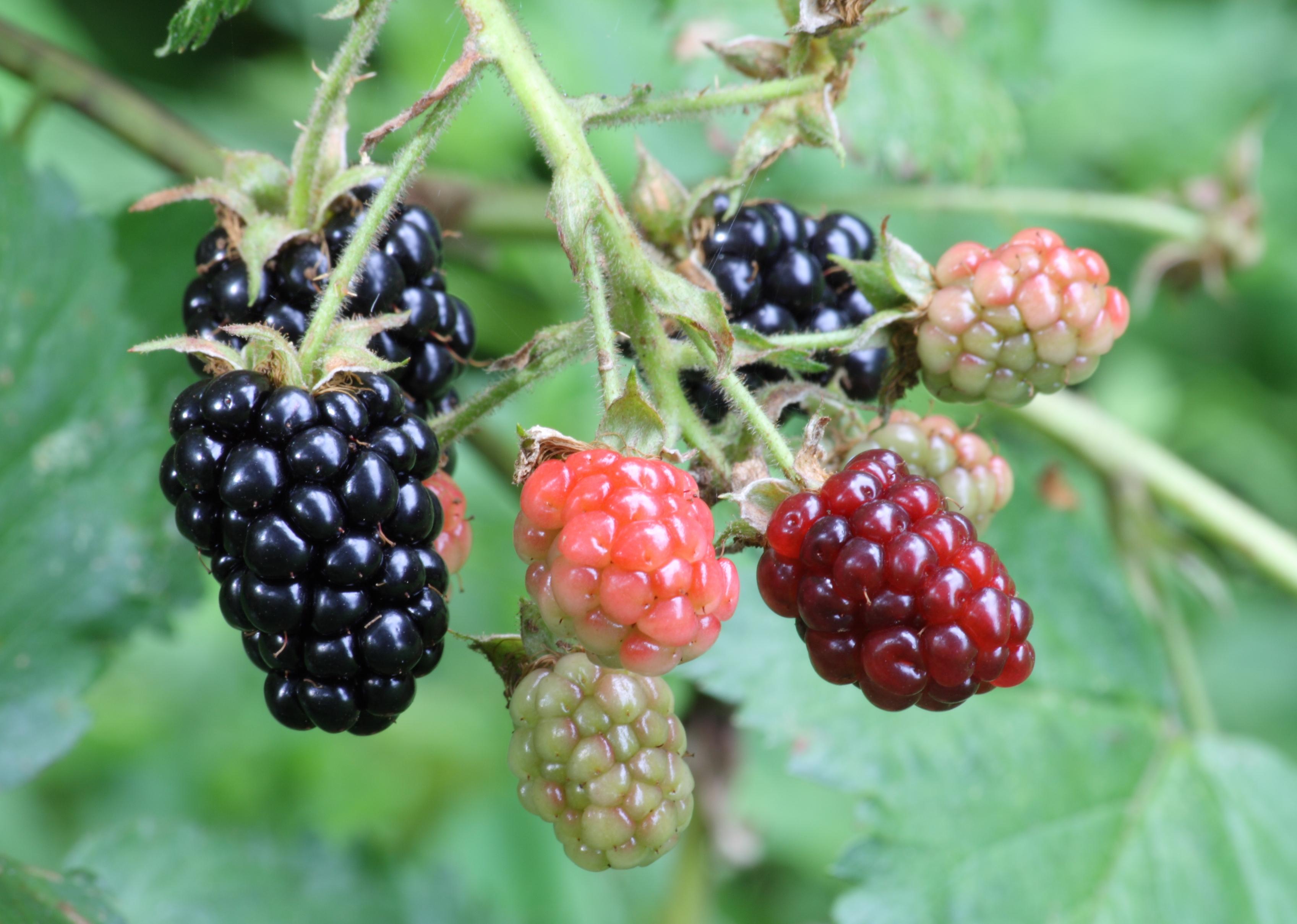
Blackberries are small, juicy fruits known for their deep purple-black color and sweet-tart flavor.
They are packed with vitamins C and K, fiber, and antioxidants, making them a healthy and delicious addition to your diet.
Blackberries can be eaten fresh, added to desserts, or blended into smoothies.
- Flavor: Sweet with a slight tartness.
- Uses: Snacks, desserts, smoothies, and salads.
- Health Benefits: Rich in antioxidants, vitamins C and K, and fiber.
2. Black Beans
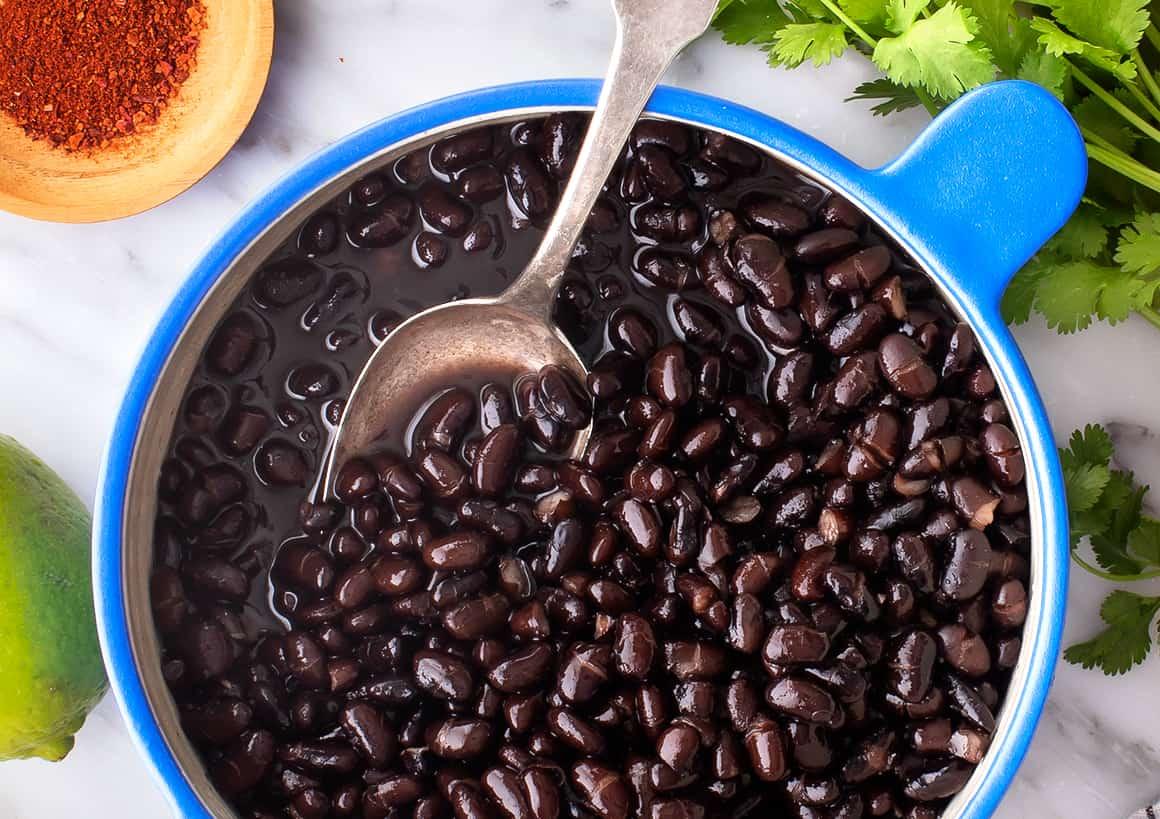
Black beans are a staple in Latin American cuisine, valued for their rich, earthy flavor and high protein content.
These beans are also a great source of fiber and iron, making them a nutritious choice for vegetarians and vegans.
Black beans can be used in soups, salads, burritos, and more.
- Flavor: Earthy and slightly sweet.
- Uses: Soups, salads, burritos, and stews.
- Health Benefits: High in protein, fiber, and iron.
3. Black Rice
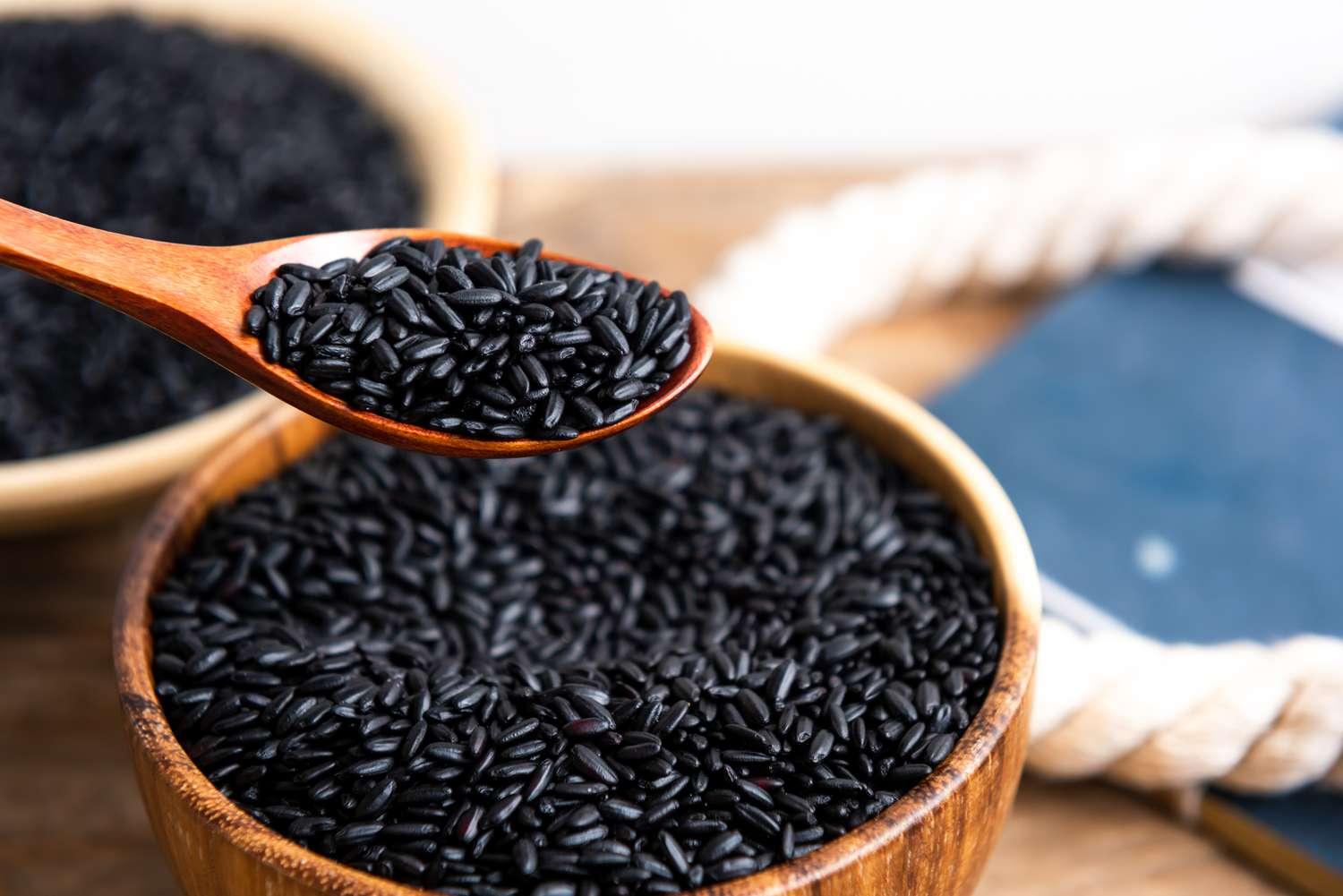
Black rice, also known as forbidden rice, has a slightly nutty flavor and chewy texture.
It gets its dark color from anthocyanins, powerful antioxidants also found in blueberries.
Black rice is a nutrient-dense grain, rich in fiber and iron, making it a healthy alternative to white rice.
- Flavor: Nutty and slightly earthy.
- Uses: Stir-fries, salads, and grain bowls.
- Health Benefits: High in fiber, iron, and antioxidants.
4. Black Sesame Seeds
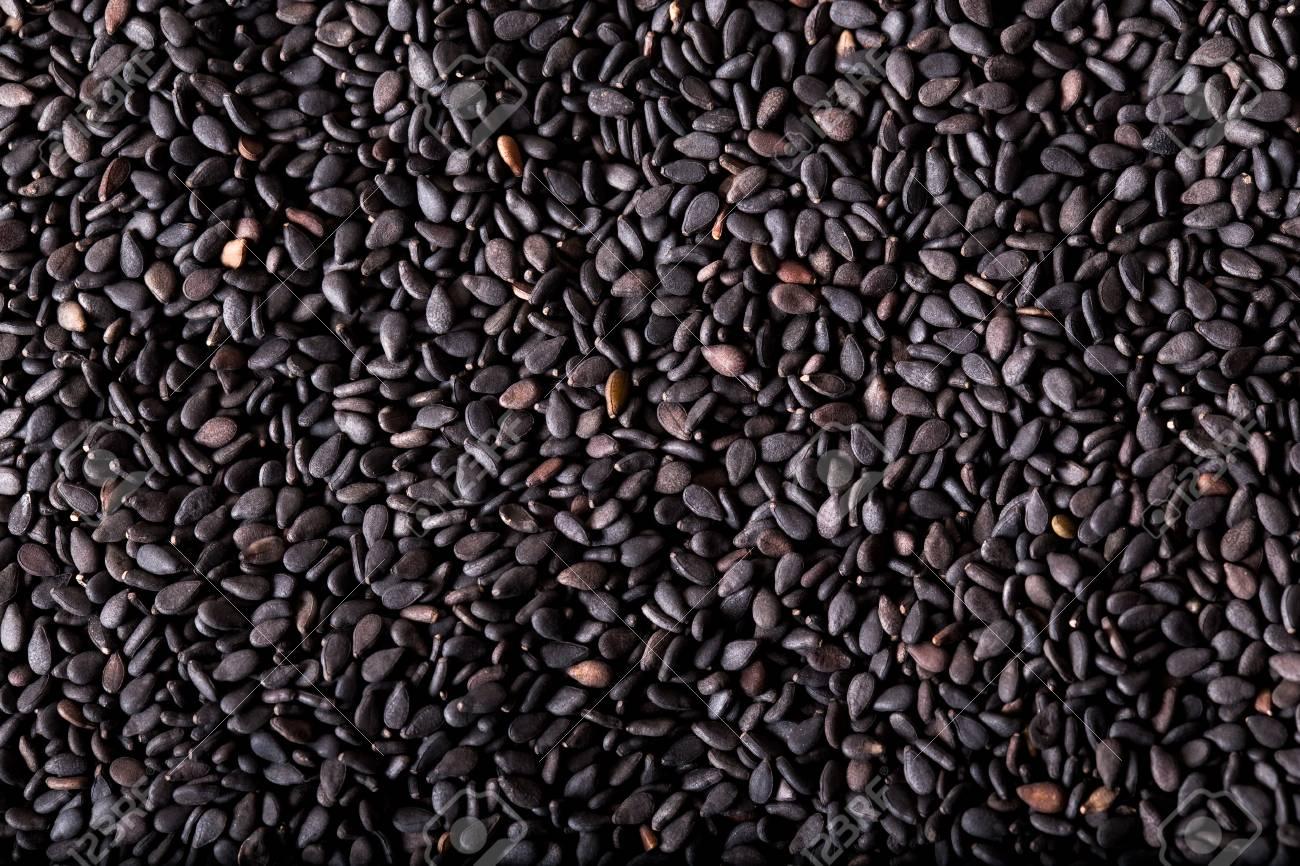
Black sesame seeds are small, nutty seeds often used in Asian and Middle Eastern cuisine.
They add a delightful crunch to both sweet and savory dishes and are packed with nutrients like calcium, magnesium, and healthy fats, making them a great addition to your meals.
- Flavor: Nutty and slightly sweet.
- Uses: Toppings for salads, sushi, desserts, and baked goods.
- Health Benefits: Rich in calcium, magnesium, and healthy fats.
5. Black Olives
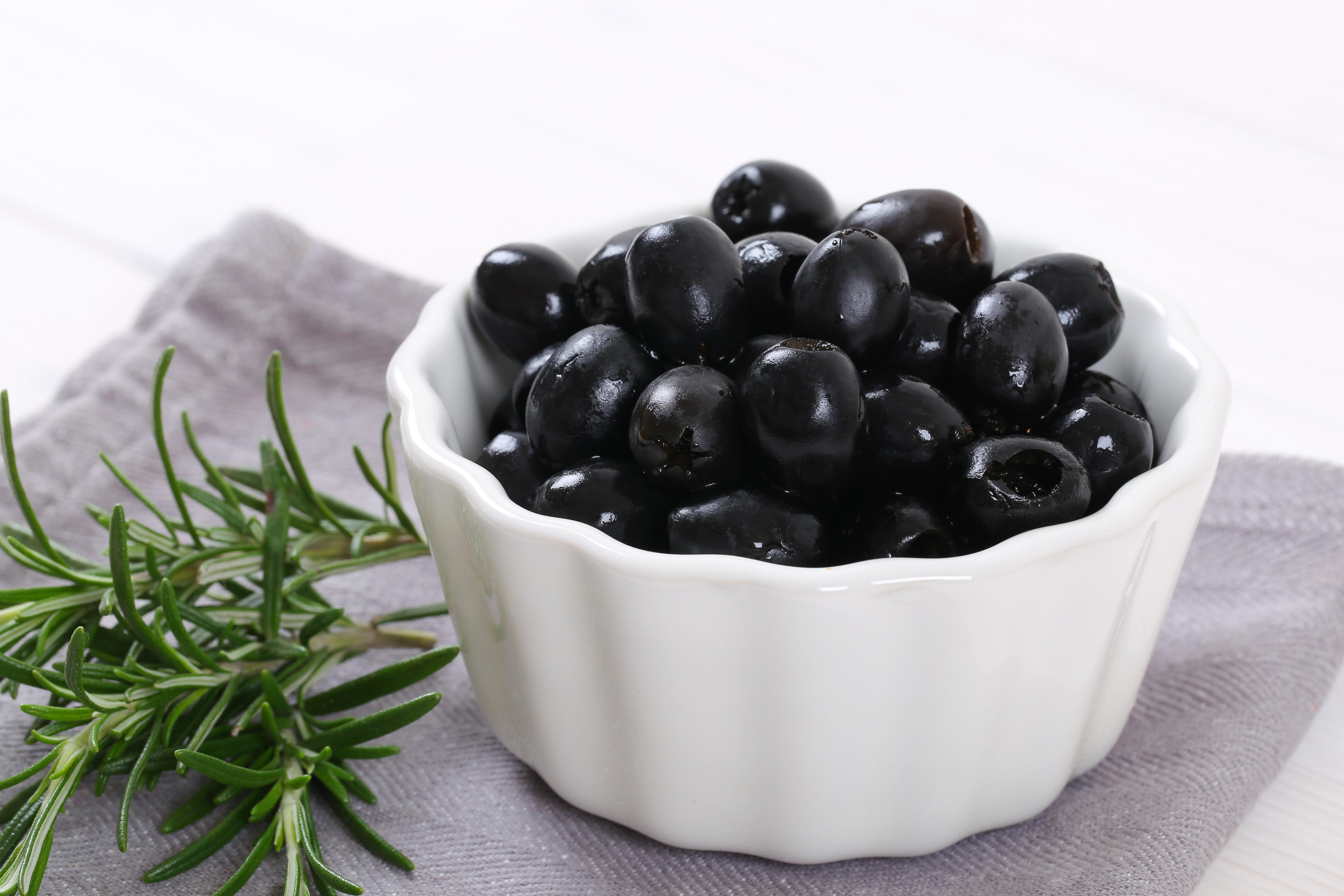
Black olives are a Mediterranean staple known for their rich, salty flavor.
They are commonly used in salads, pizzas, and tapenades.
In addition to their distinct taste, black olives are high in healthy fats and antioxidants, making them heart-healthy.
- Flavor: Rich and briny with a slight bitterness.
- Uses: Salads, pizzas, tapenades, and pasta dishes.
- Health Benefits: High in healthy fats and antioxidants, supporting heart health.
6. Black Garlic
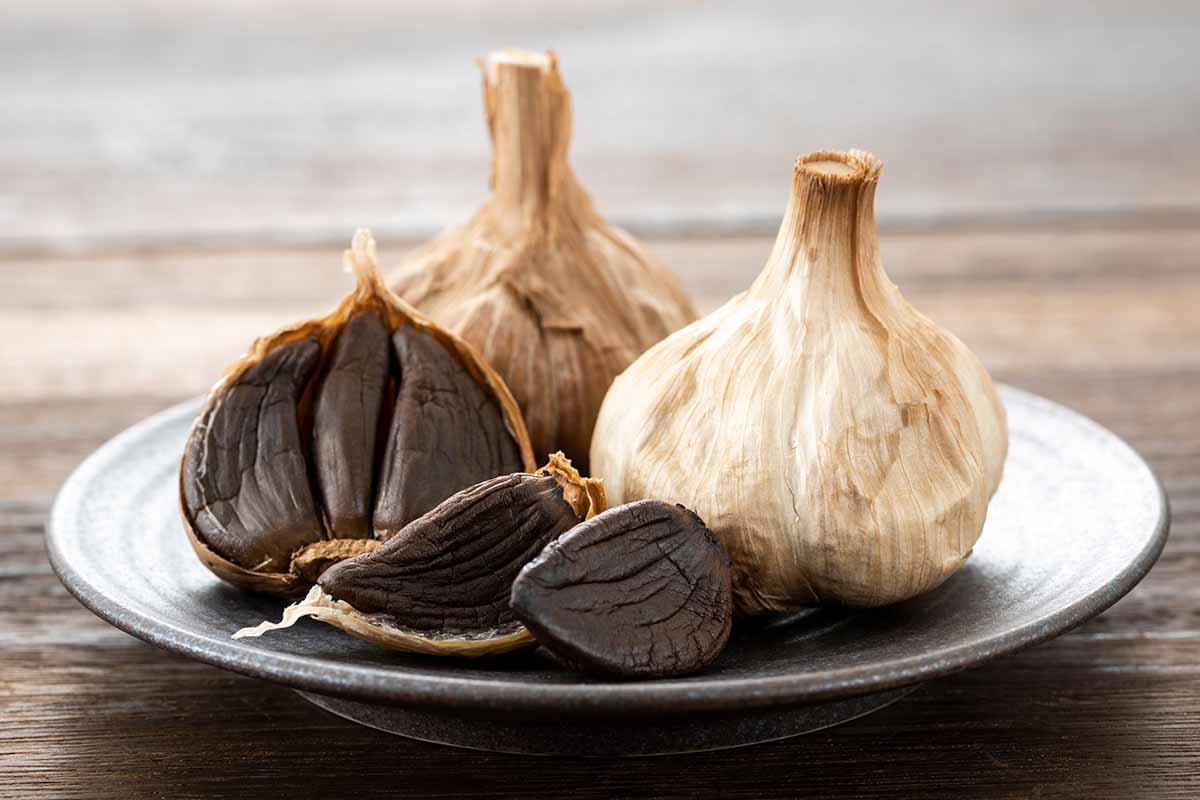
Black garlic is created by fermenting fresh bulbs, producing a soft, sweet, and tangy flavor.
Its unique taste combines molasses and balsamic vinegar, making it a favorite in gourmet dishes.
Black garlic also contains high antioxidants and may help support heart health.
- Flavor: Sweet, tangy, with a hint of balsamic vinegar.
- Uses: Sauces, marinades, and gourmet dishes.
- Health Benefits: High in antioxidants, with heart-protective properties.
7. Black Lentils
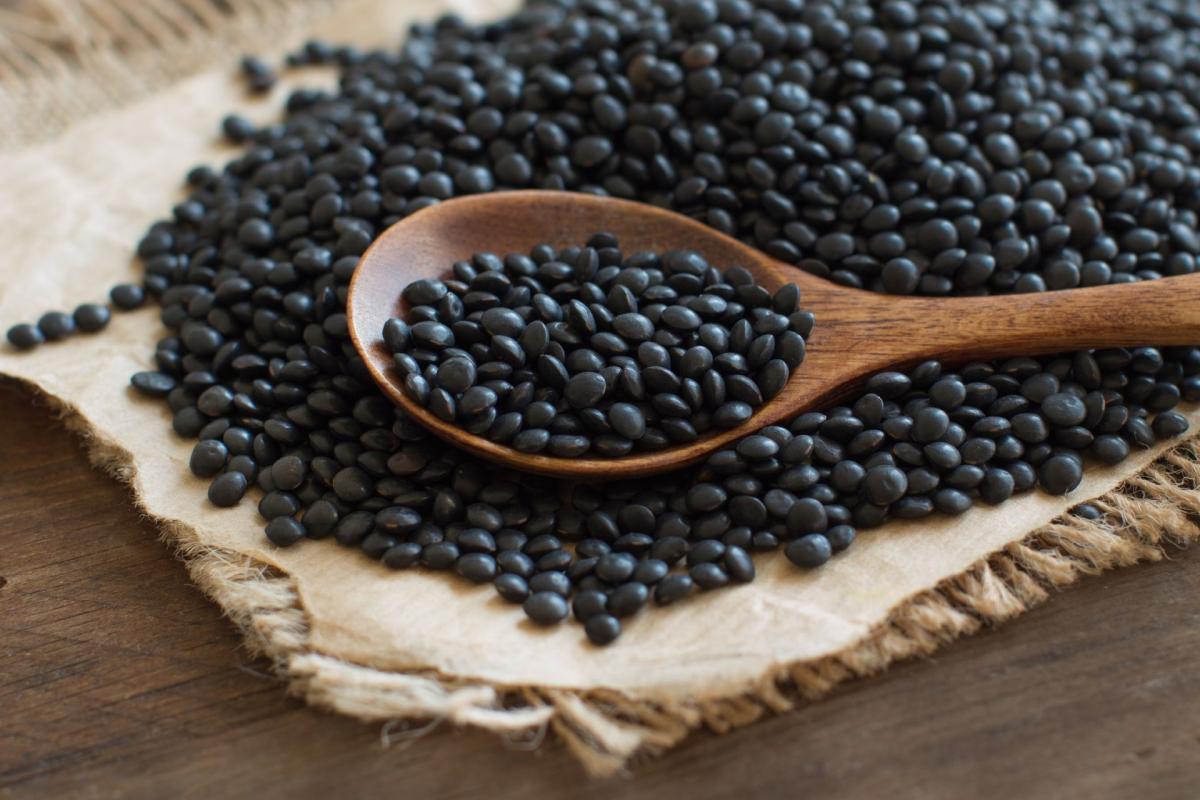
Black lentils, also known as beluga lentils, are small, round lentils with a dark, shiny appearance.
They hold their shape well when cooked and have an earthy, slightly peppery taste.
Packed with protein, fiber, and iron, black lentils are a nutritious addition to soups, salads, and side dishes.
- Flavor: Earthy and slightly peppery.
- Uses: Soups, salads, and as a side dish.
- Health Benefits: They are high in protein, fiber, and iron, making them great for vegetarians and vegans.
8. Black Mission Figs
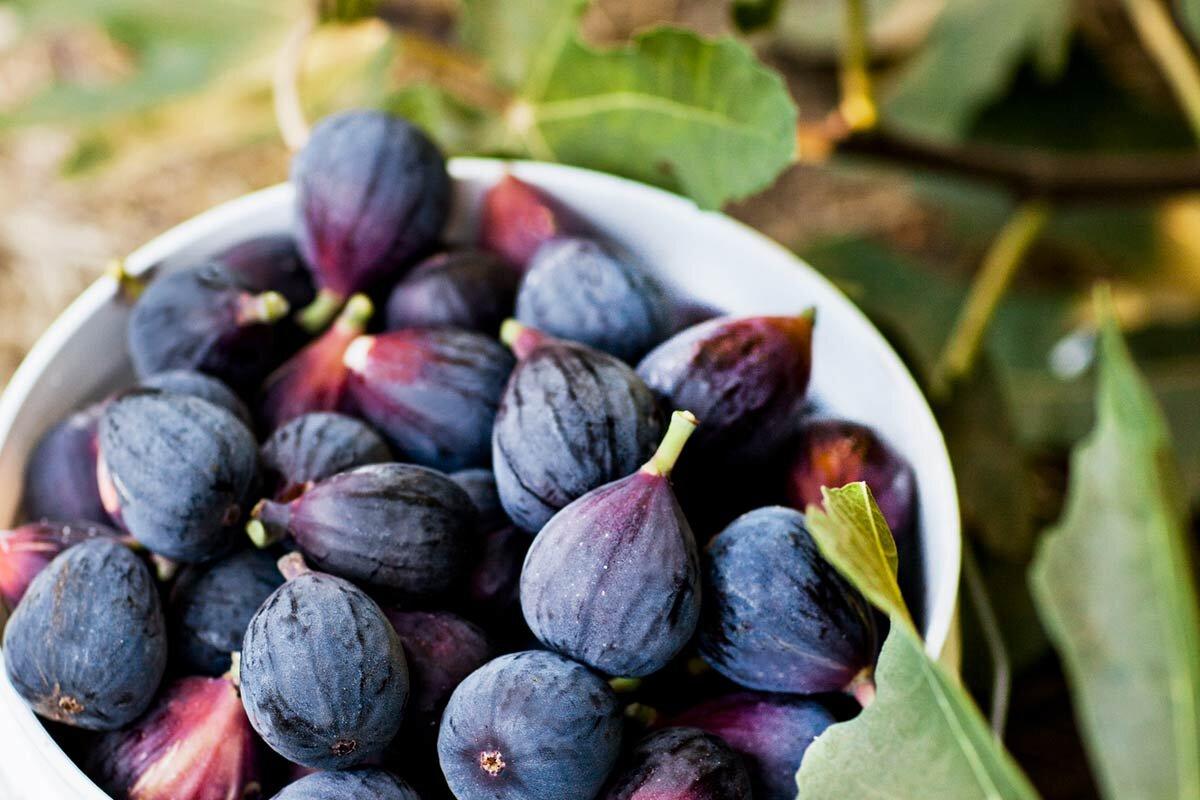
Black Mission figs are soft, sweet fruits with a deep purple-black skin and pink flesh.
They are naturally sweet and are often eaten fresh or dried.
Figs are a good source of fiber, vitamins, and minerals, including potassium and magnesium, making them delicious and nutritious.
- Flavor: Sweet and mildly tangy.
- Uses: Eaten fresh, dried, or added to salads and desserts.
- Health Benefits: High in fiber, potassium, and magnesium, supporting digestion and heart health.
9. Blackcurrants
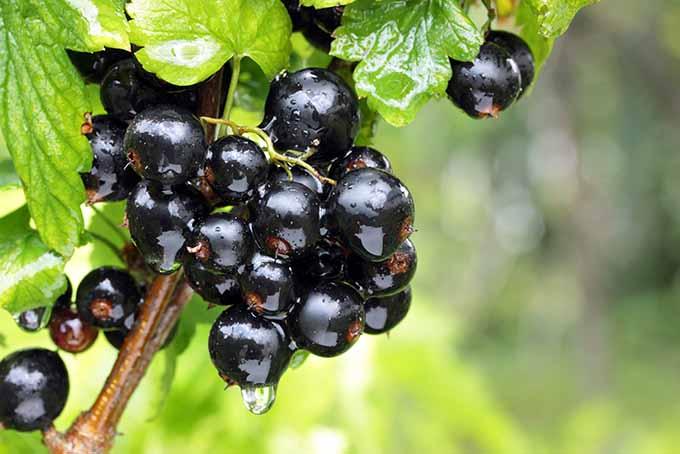
Blackcurrants are small, tart berries packed with vitamin C and antioxidants.
Their strong flavor makes them perfect for jams, syrups, and baked goods.
Blackcurrants are also known for their immune-boosting properties and are commonly used in teas and health supplements.
- Flavor: Tart and slightly sweet.
- Uses: Jams, syrups, baked goods, and teas.
- Health Benefits: Rich in vitamin C and antioxidants, boosting the immune system.
10. Black Truffles

Black truffles are rare, aromatic fungi prized for their intense, earthy flavor and luxurious appeal.
Often used in gourmet cooking, black truffles can elevate dishes like pasta, risotto, and eggs.
They are also known for their health benefits, such as boosting immune function and acting as a natural antioxidant.
- Flavor: Earthy, musky, and slightly garlicky.
- Uses: Pasta, risotto, eggs, and gourmet dishes.
- Health Benefits: Rich in antioxidants, supporting immune health.
11. Black Quinoa
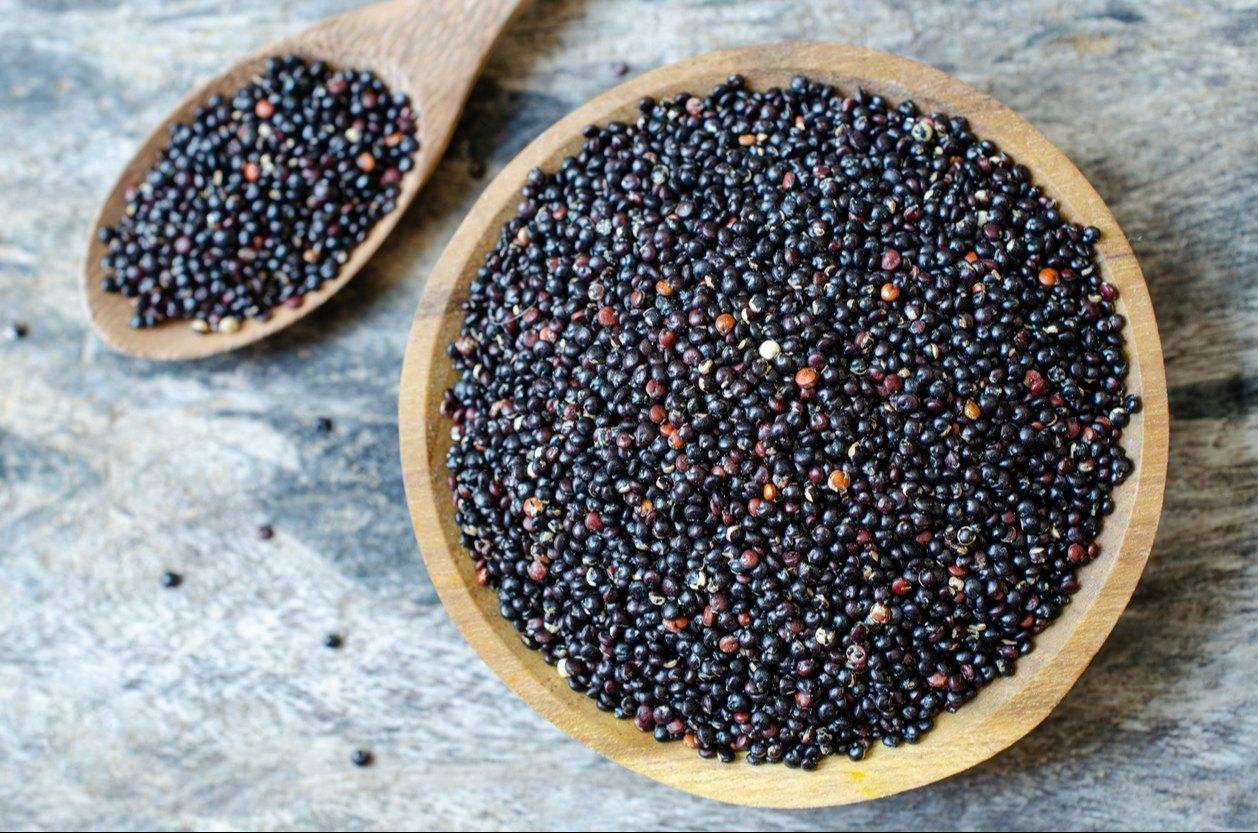
Black quinoa is a nutrient-dense grain with a slightly crunchier texture and nuttier flavor than white quinoa.
It is high in protein and contains all nine essential amino acids, making it a complete protein source.
Black quinoa is also rich in fiber, magnesium, and antioxidants.
- Flavor: Nutty and slightly earthy.
- Uses: Grain bowls, salads, and side dishes.
- Health Benefits: High in protein, fiber, and essential amino acids.
12. Black Grapes
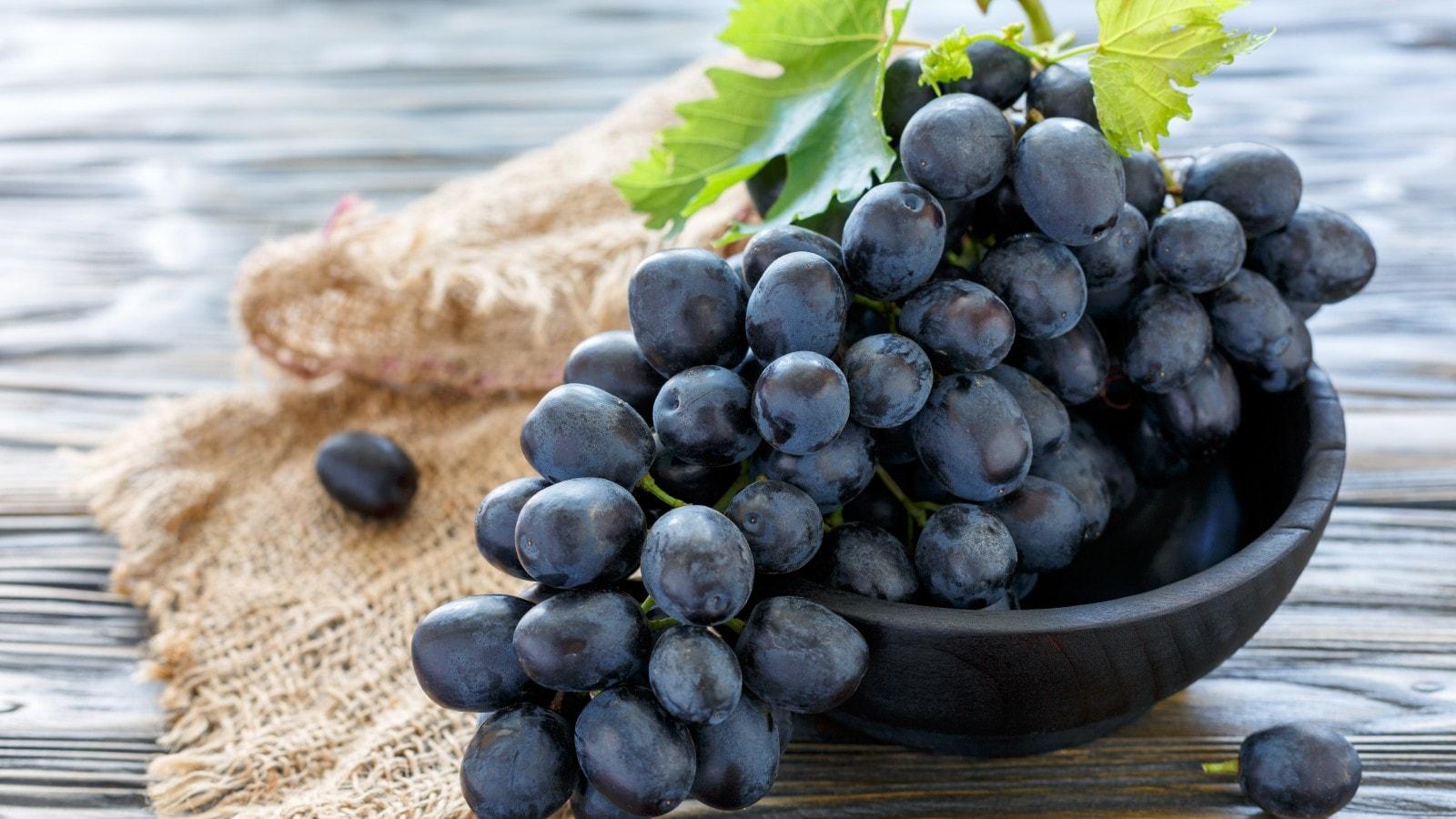
Black grapes are sweet, juicy, and full of antioxidants, particularly anthocyanins, which give them dark colors.
They are commonly eaten fresh, used in juices, or turned into wine.
Black grapes are also a good source of vitamins C and K, promoting overall health.
- Flavor: Sweet and juicy with a slight tartness.
- Uses: Eaten fresh, juiced, or made into wine.
- Health Benefits: Rich in antioxidants and vitamins C and K, supporting heart health and immunity.
13. Black Cumin Seeds
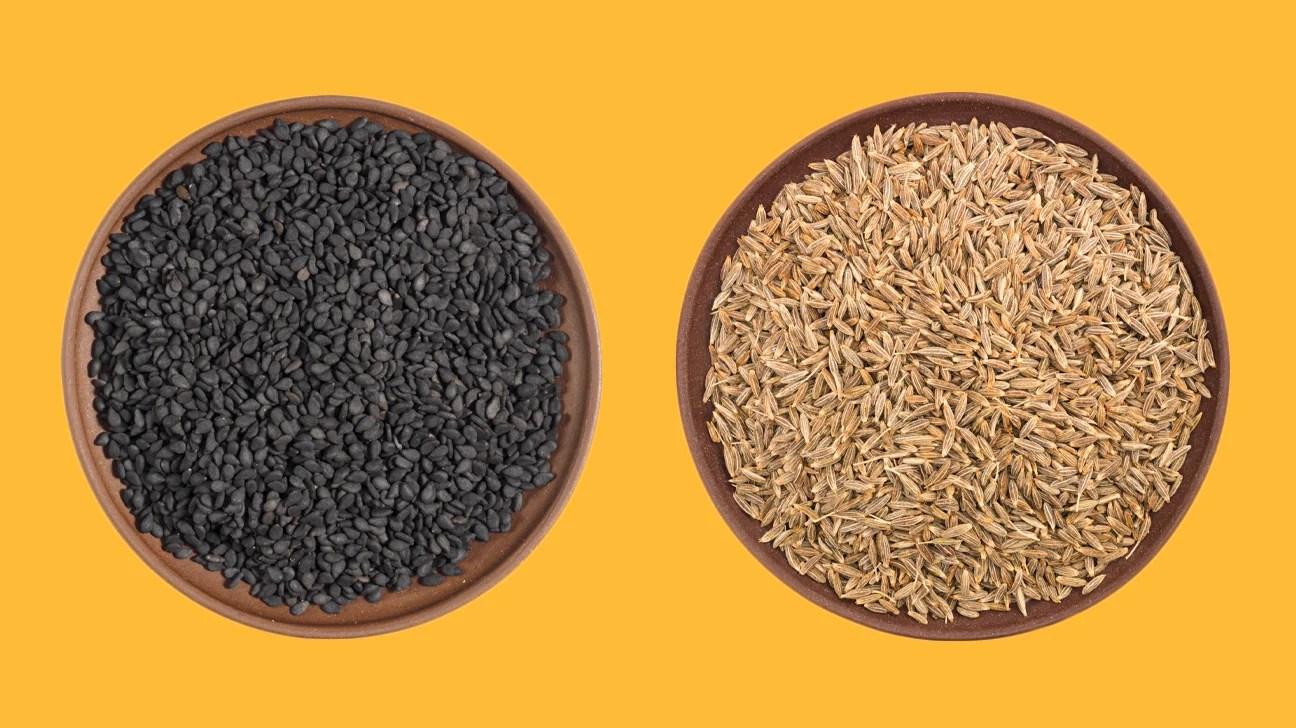
Black cumin seeds, or Nigella seeds, are tiny black seeds with a slightly bitter, peppery flavor.
They are often used as a spice in Middle Eastern and Indian cuisine.
Black cumin seeds are known for their medicinal properties and are said to support immune function and digestion.
- Flavor: Bitter, peppery, and slightly nutty.
- Uses: Spice for curries, bread, and salads.
- Health Benefits: Supports digestion and immune function, with antioxidant properties.
14. Black Sapote
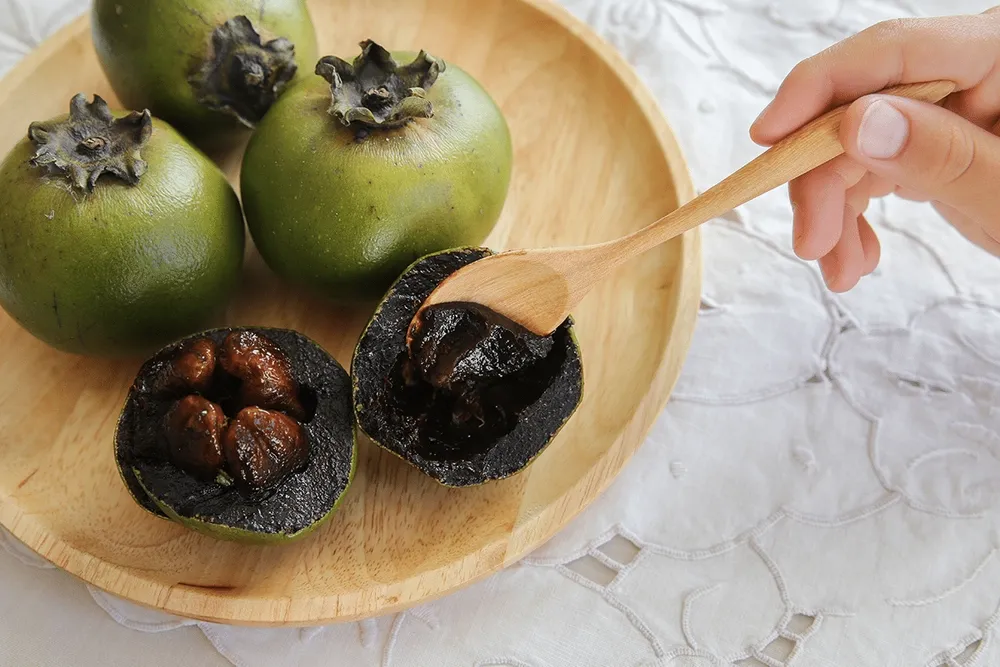
Black sapote, also known as the “chocolate pudding fruit,” has a soft, creamy texture and a sweet, chocolate-like flavor when ripe.
This tropical fruit is rich in vitamin C and is often used in smoothies, desserts, and recipes as a healthy substitute for chocolate.
- Flavor: Sweet and similar to chocolate pudding.
- Uses: Smoothies, desserts, and healthy snacks.
- Health Benefits: High in vitamin C and low in fat, supporting immune health.
15. Black Cod
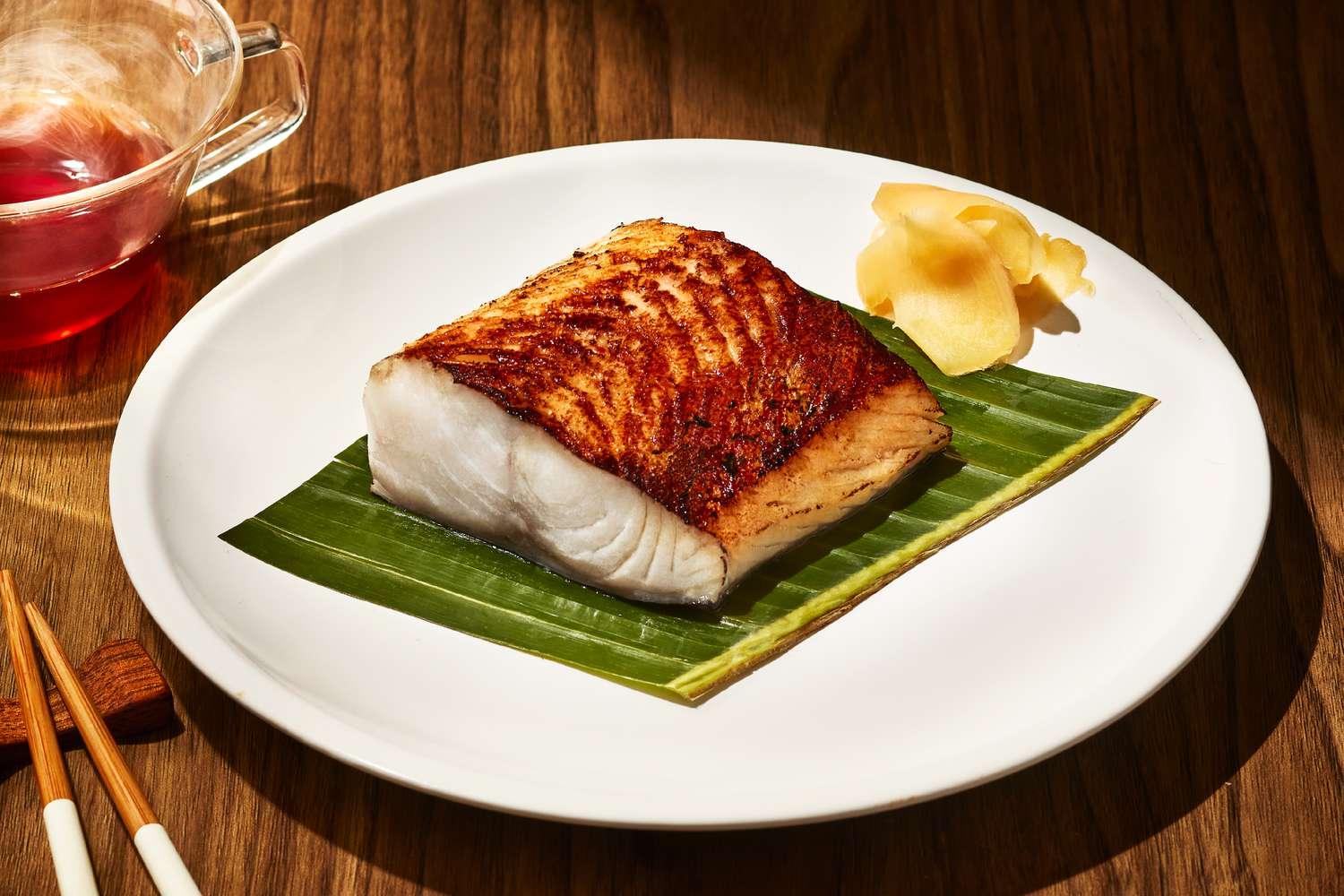
Black cod, also known as sablefish, is a deep-sea fish known for its buttery texture and rich flavor.
It’s packed with omega-3 fatty acids, which benefit heart and brain health.
Black cod is often grilled, baked, or smoked, making it a versatile seafood choice.
- Flavor: Buttery and rich.
- Uses: Grilled, baked, or smoked.
- Health Benefits: High in omega-3 fatty acids, supporting heart and brain health.
16. Squid Ink Pasta
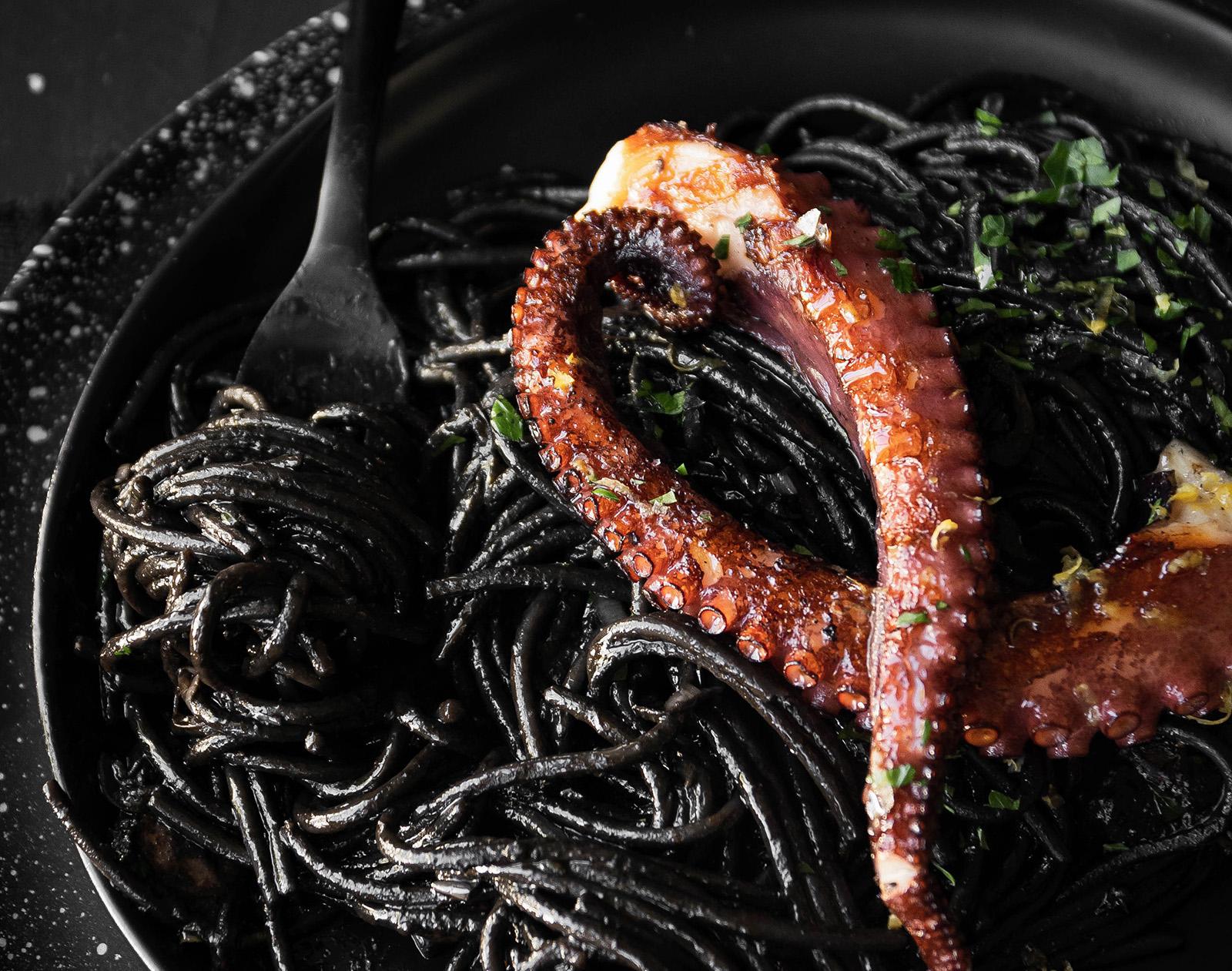
Squid ink pasta is a dramatic-looking black pasta made by adding squid ink to the dough, giving it a salty, savory flavor.
This pasta pairs well with seafood dishes, offering a unique and bold flavor.
The squid ink also contains antioxidants and nutrients like iron and calcium.
- Flavor: Briny and slightly salty.
- Uses: Served with seafood sauces or in gourmet pasta dishes.
- Health Benefits: Contains antioxidants, iron, and calcium, supporting overall health.
17. Black Vinegar

Black vinegar, often used in Asian cuisine, is a fermented vinegar made from rice, wheat, or millet.
It has a deep, rich flavor with hints of malt and sweetness, making it perfect for dressings, marinades, and dipping sauces.
Black vinegar is also known for its digestive benefits.
- Flavor: Deep, rich, and slightly sweet.
- Uses: Dressings, marinades, and dipping sauces.
- Health Benefits: Supports digestion and has antioxidant properties.
18. Black Mushrooms (Wood Ear)
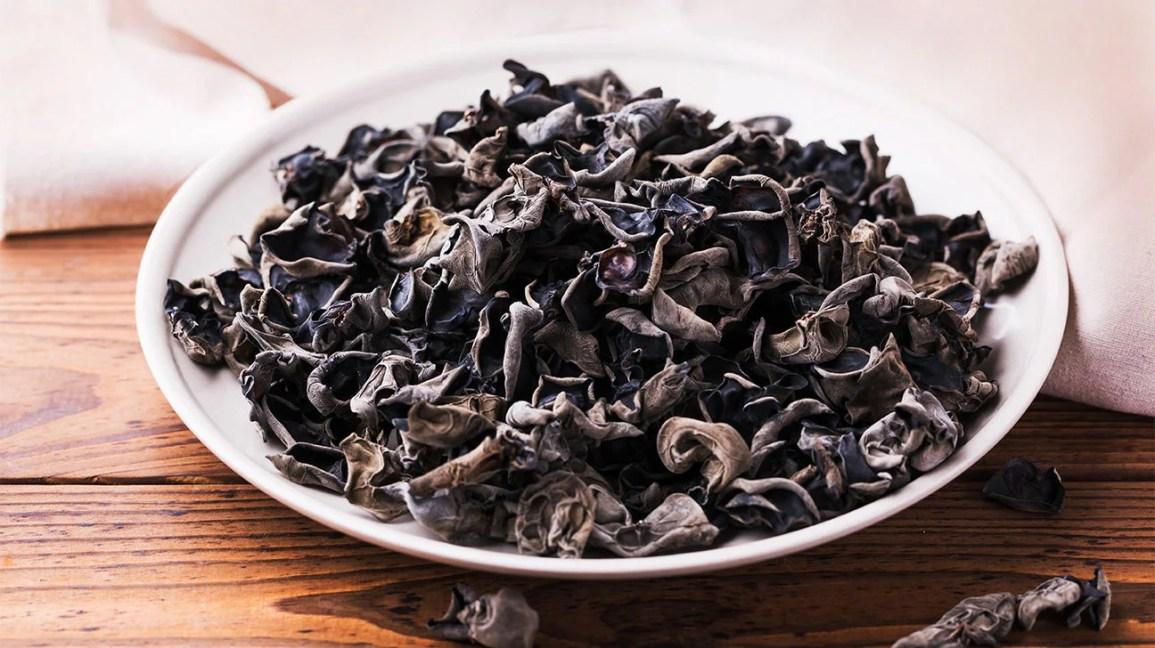
Black mushrooms, also known as wood ear mushrooms, are popular in Asian cooking for their chewy texture and mild flavor.
They are often used in soups, stir-fries, and salads.
These mushrooms are low in calories and fiber, offering digestive benefits.
- Flavor: Mild and slightly earthy.
- Uses: Stir-fries, soups, and salads.
- Health Benefits: Low in calories, high in fiber, supporting digestive health.
19. Black Tahini
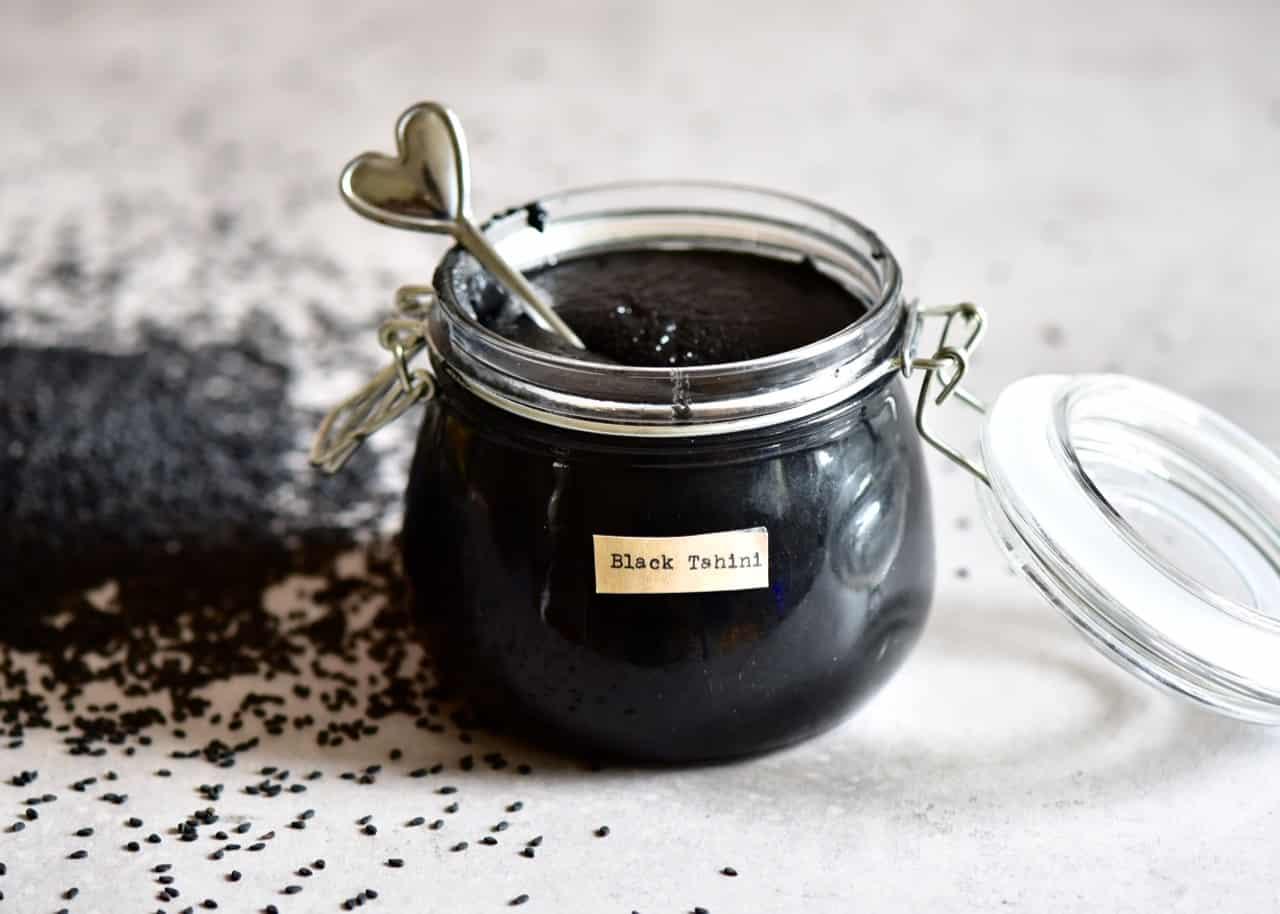
Black tahini is a smooth paste made from black sesame seeds, giving it a richer, more intense flavor than regular tahini.
It’s commonly used in Middle Eastern cuisine and can be spread on bread, added to sauces, or used in desserts.
Black tahini is high in healthy fats and minerals like calcium.
- Flavor: Rich and slightly nutty.
- Uses: Spread on bread, used in sauces, or added to desserts.
- Health Benefits: High in healthy fats, calcium, and antioxidants.
20. Black Pudding
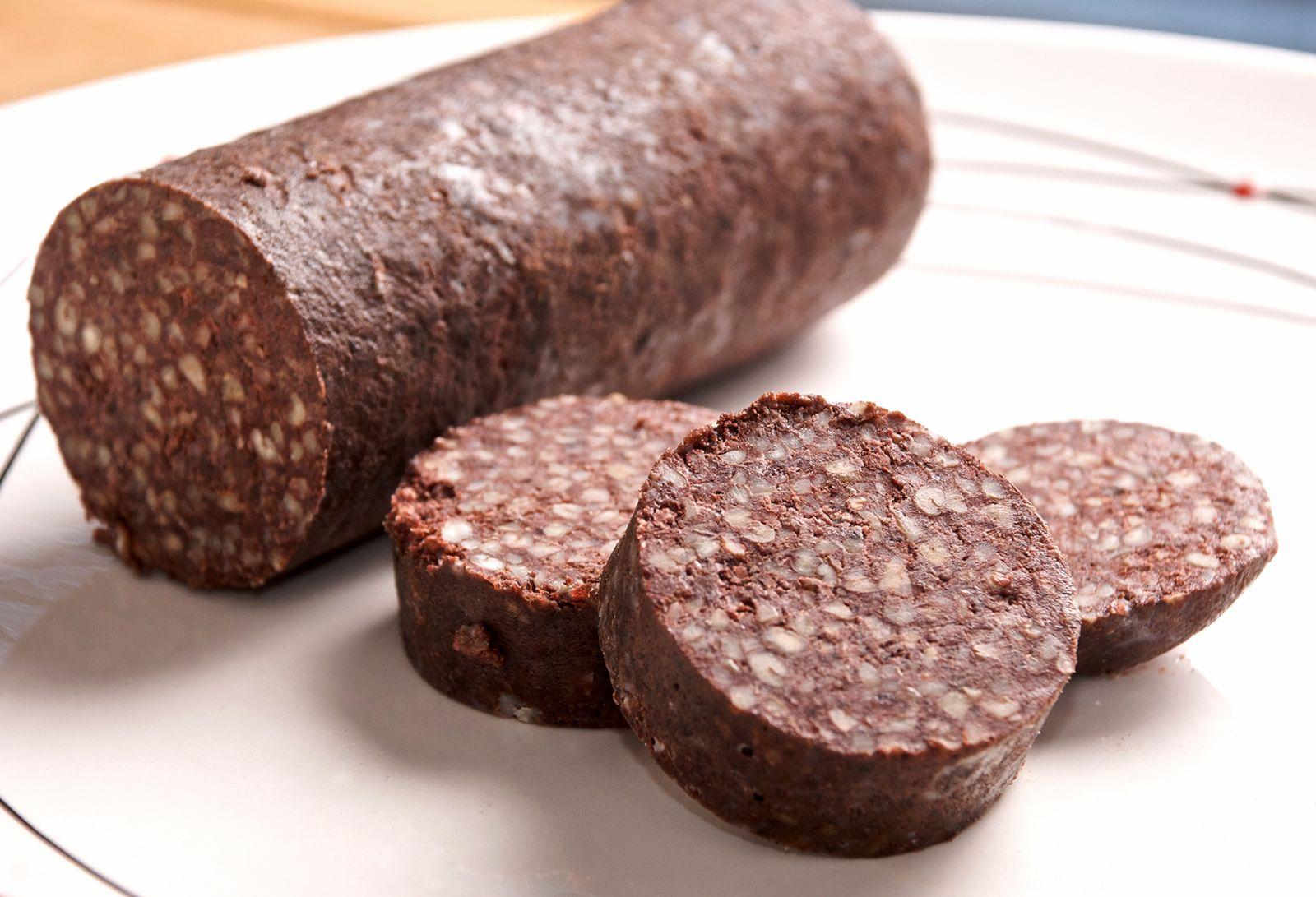
Black pudding is a blood sausage made from pork blood, fat, and oatmeal.
It has a rich, savory flavor and is a popular dish in British and Irish breakfasts.
Black pudding is high in protein and iron, making it a filling and nutrient-rich option.
- Flavor: Rich, savory, and slightly earthy.
- Uses: Served as part of traditional breakfasts or fried with other meats.
- Health Benefits: High protein and iron support energy and blood health.
21. Black Soybeans
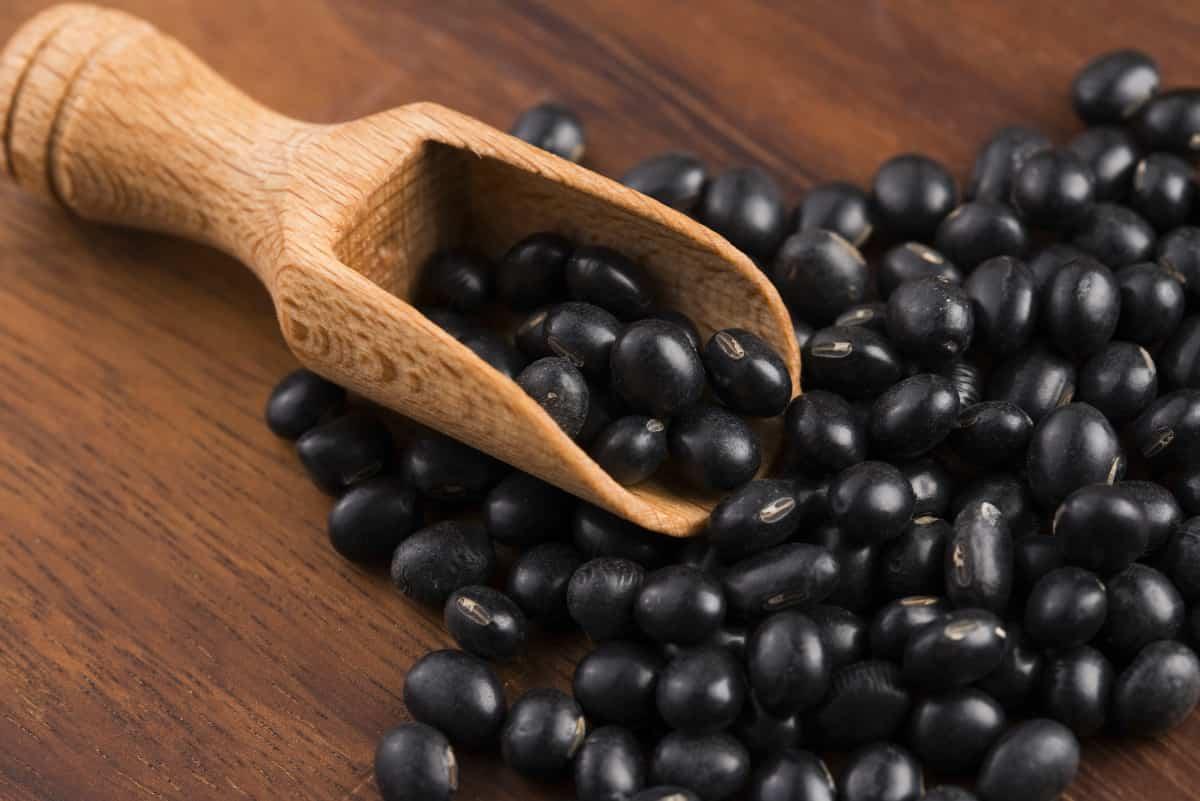
Black soybeans are a nutrient-rich legume known for their mild flavor and firm texture.
They are often used in Asian cuisine or as a substitute for traditional soybeans.
Black soybeans are a great source of plant-based protein and fiber, and they are lower in carbohydrates than regular soybeans, making them popular in low-carb diets.
- Flavor: Mild and slightly nutty.
- Uses: Stir-fries, soups, and salads.
- Health Benefits: They are high in protein and fiber and low in carbohydrates, making them great for a balanced diet.
22. Charcoal Ice Cream

Charcoal ice cream is a trendy, black-hued dessert made with activated charcoal, which gives it a slightly earthy flavor and a striking appearance.
While the flavor can vary based on additional ingredients, it is often paired with vanilla or coconut.
Activated charcoal is known for its detoxifying properties.
- Flavor: Earthy with a hint of sweetness.
- Uses: Served as a unique dessert option.
- Health Benefits: Contains activated charcoal, which is believed to help with detoxification.
23. Black Cherries
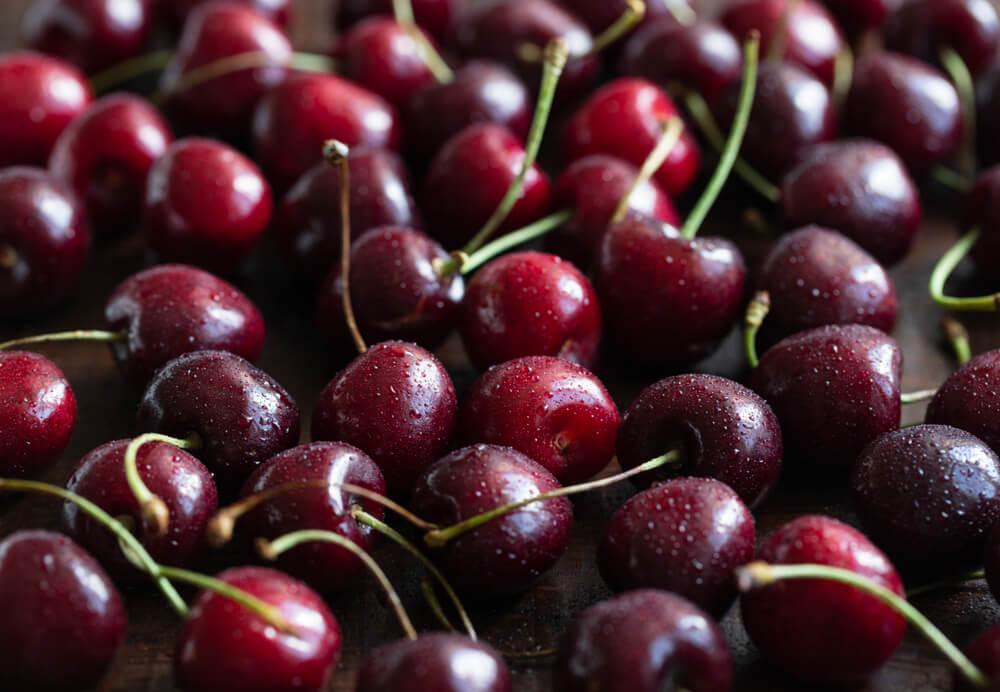
Black cherries are sweet, dark fruits that are packed with antioxidants, especially anthocyanins, which give them their deep color.
They can be eaten fresh or used in pies, jams, and smoothies.
Black cherries are also known for their anti-inflammatory properties and ability to support heart health.
- Flavor: Sweet with a slightly tart finish.
- Uses: Eaten fresh, used in pies, jams, and smoothies.
- Health Benefits: Rich in antioxidants and anti-inflammatory compounds, supporting heart health.
24. Seaweed
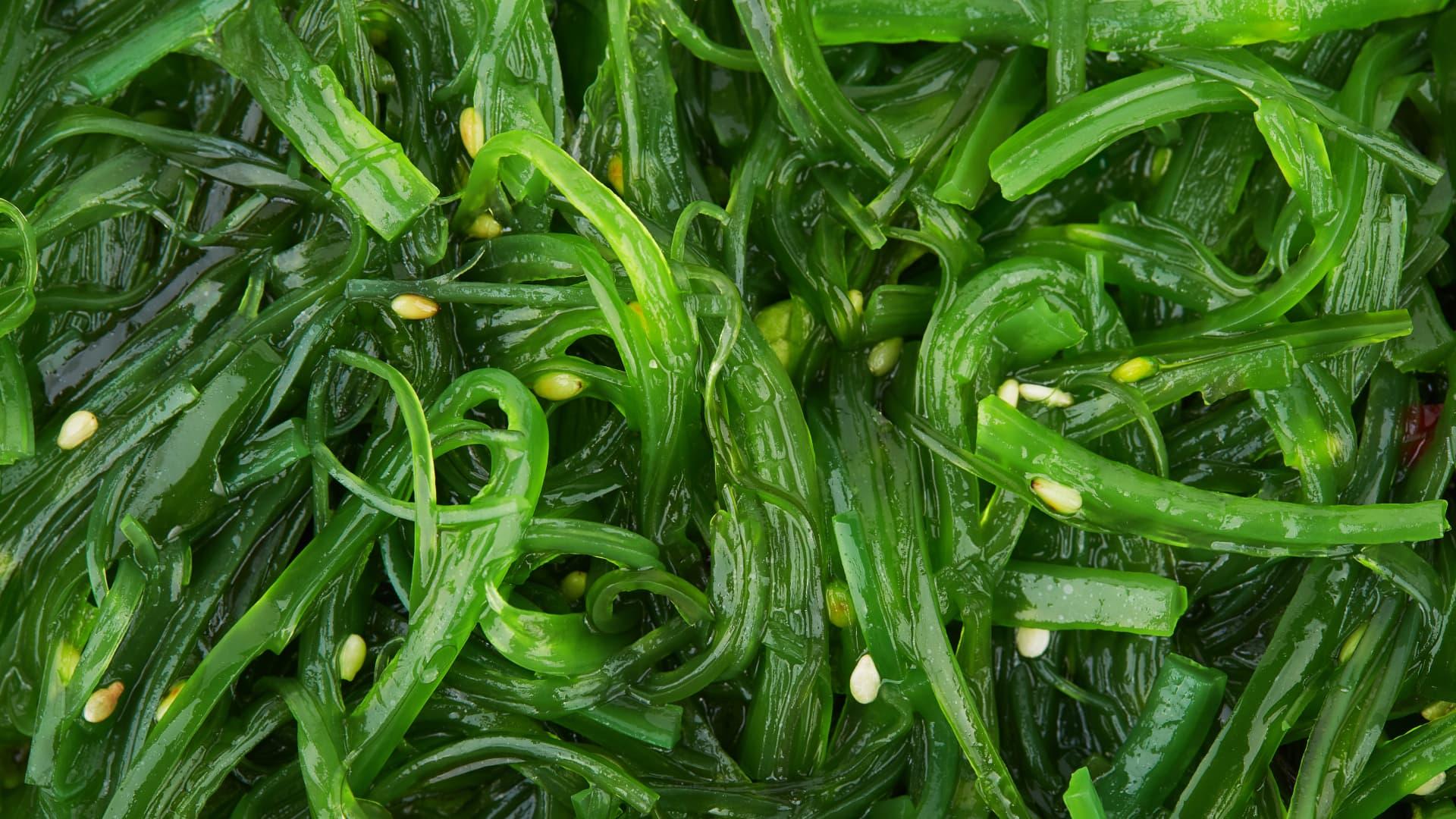
Seaweed, particularly black varieties like nori or wakame, is a nutrient-dense food rich in minerals like iodine, calcium, and magnesium.
It’s commonly used in Asian dishes such as sushi, salads, and soups.
Seaweed also contains fiber and antioxidants, making it a highly nutritious addition to your diet.
- Flavor: Slightly salty with an umami taste.
- Uses: Sushi, salads, soups, and snacks.
- Health Benefits: Rich in iodine, fiber, and antioxidants, promoting thyroid health and digestion.
25. Black Licorice

Black licorice is a chewy candy flavored with licorice root extract.
Its distinctive, bold flavor is loved by some and disliked by others.
Traditionally used for its medicinal properties, black licorice is also believed to aid digestion and soothe sore throats.
- Flavor: Sweet, slightly bitter, and earthy.
- Uses: Eaten as a candy or used in herbal remedies.
- Health Benefits: Known for its digestive benefits and soothing properties for sore throats.
26. Black Mulberries
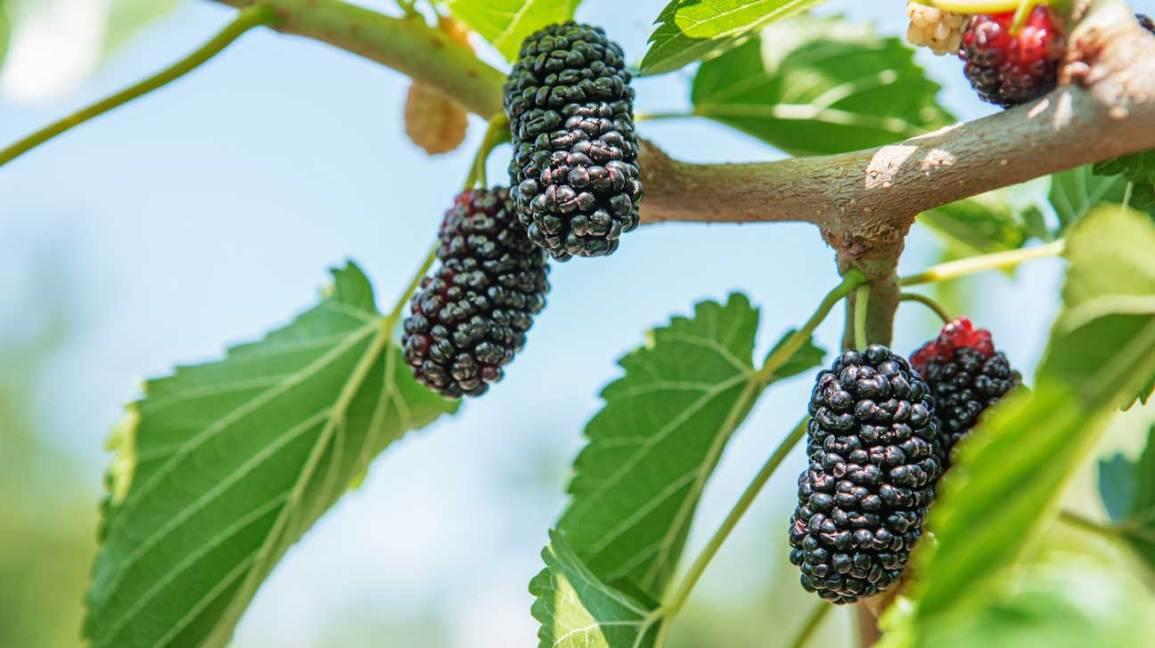
Black mulberries are sweet, juicy berries with a rich flavor, often eaten fresh or used in desserts and jams.
They are high in vitamin C, iron, and antioxidants, supporting immune health and offering anti-inflammatory benefits.
- Flavor: Sweet and juicy with a rich flavor.
- Uses: Eaten fresh, made into jams, or used in desserts.
- Health Benefits: High in vitamin C, iron, and antioxidants, supporting immune function and overall health.
27. Black Radish
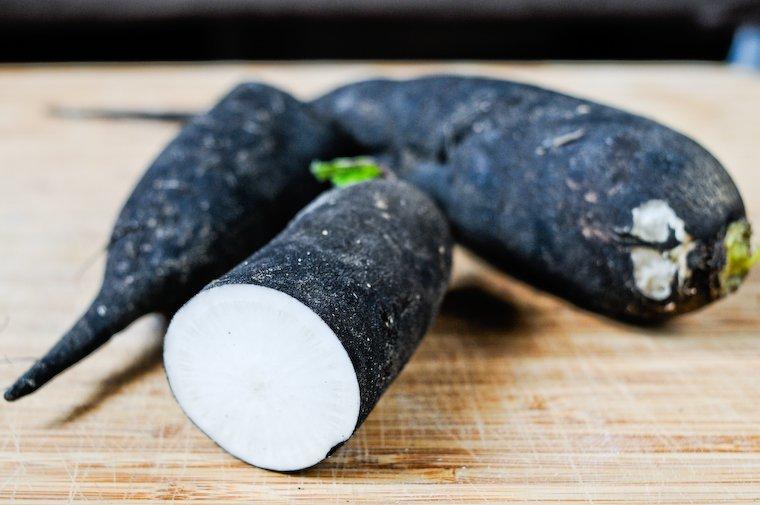
Black radishes are a root vegetable with a tough black skin and white, peppery flesh.
They are often used in salads, pickled, or added to soups.
Black radishes are known for their detoxifying properties and are rich in vitamin C and fiber.
- Flavor: Peppery and slightly bitter.
- Uses: Salads, pickled, or added to soups.
- Health Benefits: Rich in vitamin C and fiber, supporting digestion and immune health.
28. Black Chickpeas
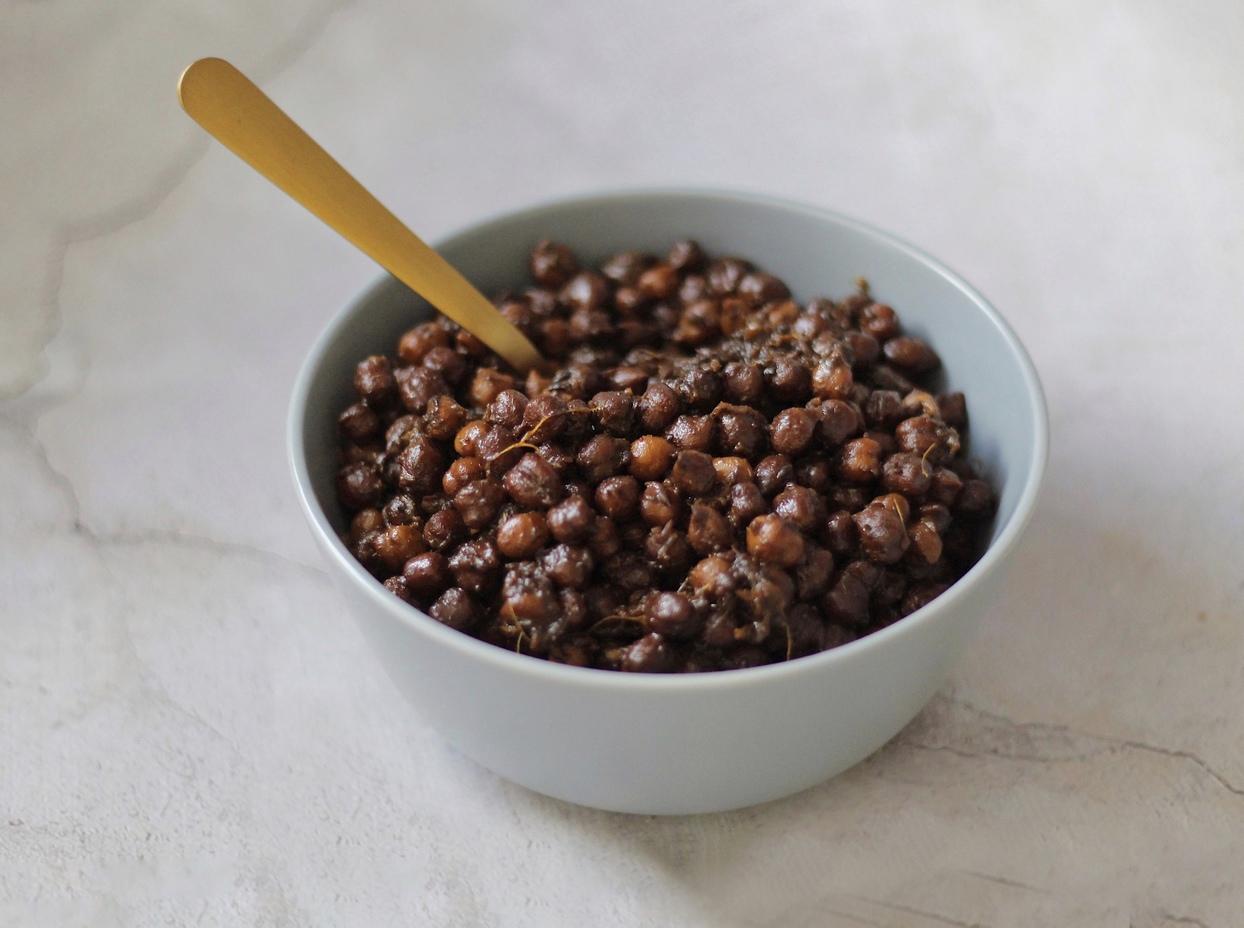
Black chickpeas, also known as kala chana, are a variety of chickpea with a firmer texture and nuttier flavor than the white variety.
They are commonly used in Indian cuisine and are a good source of protein, fiber, and iron.
- Flavor: Nutty and earthy.
- Uses: Curries, soups, salads, and stews.
- Health Benefits: High in protein, fiber, and iron, supporting muscle growth and digestion.
29. Beluga Lentils

Beluga lentils are small, black lentils named after the beluga caviar they resemble.
They have a mild, earthy flavor and hold their shape well when cooked.
Beluga lentils are rich in protein, fiber, and iron, making them a nutritious addition to salads, soups, and grain bowls.
- Flavor: Mild and earthy.
- Uses: Salads, soups, and grain bowls.
- Health Benefits: High in protein, fiber, and iron, making them ideal for plant-based diets.
30. Wild Rice
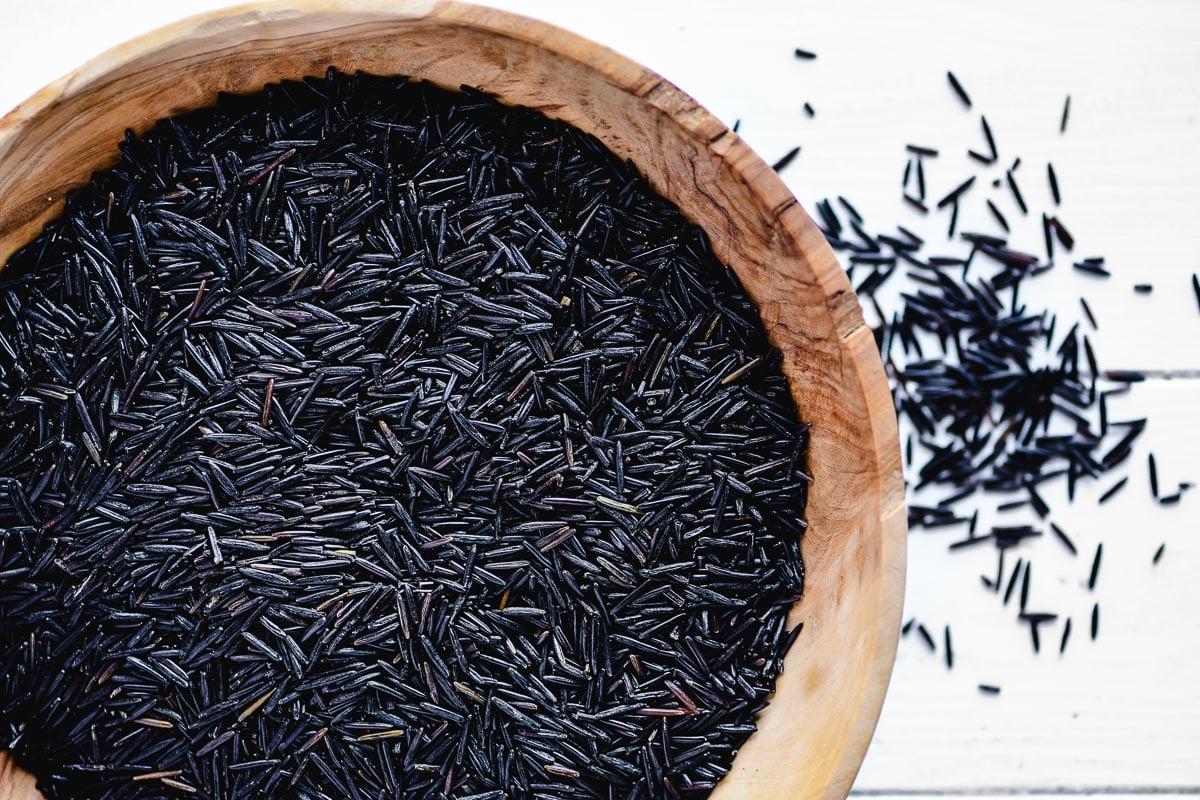
Wild rice is a whole grain with a nutty flavor and chewy texture.
It is often used as a side dish or mixed with other grains in salads and soups.
Wild rice is high in fiber, protein, and essential minerals like magnesium and phosphorus.
- Flavor: Nutty and slightly chewy.
- Uses: Salads, soups, and side dishes.
- Health Benefits: High in fiber, protein, and essential minerals, promoting heart health and digestion.
Tips and Tricks for Incorporating Black Foods into Your Diet
Adding black foods to your diet can be both fun and beneficial.
Their vibrant appearance and rich nutritional content make them a great addition to any meal.
Here are some tips and tricks to help you make the most of these unique ingredients.
1. Start with Simple Substitutes
Introducing black foods doesn’t have to be complicated.
You can begin by substituting everyday ingredients with their black counterparts.
For example, replace white rice with black rice or swap regular beans for black beans. T
hese small changes will add color and boost the nutritional value of your meals.
- Tip: Try using black quinoa instead of white quinoa in salads or grain bowls for added texture and nutrients.
2. Experiment with Desserts
Many black foods, such as blackberries, black sesame seeds, and black tahini, lend themselves beautifully to desserts.
Incorporate these ingredients into your favorite sweet treats to give them a unique twist while adding depth in flavor.
- Tip: Use black sesame seeds in cookies or create a creamy black tahini-based dessert for a bold, nutty flavor.
3. Explore Global Cuisines
Black foods are staples in various cuisines around the world.
For example, squid ink pasta is a favorite in Mediterranean cooking, while black beans and black rice are prominent in Latin American and Asian dishes.
Exploring these global cuisines will introduce you to new ways of enjoying these black ingredients.
- Tip: Make a traditional Latin American black bean soup or try a Japanese dish with black sesame or black vinegar.
4. Boost Nutrient Intake with Superfoods
Many black foods, such as black garlic, blackberries, and black quinoa, are considered superfoods due to their high antioxidant content.
Incorporating them into your diet can help you increase your intake of vitamins, minerals, and fiber, all while adding unique flavors to your meals.
- Tip: Snack on blackberries or add black quinoa to your grain salads to easily boost your daily nutrient intake.
5. Try DIY Recipes with Unique Ingredients
Some black foods, like black sapote and charcoal ice cream, are less common but worth trying for their unique flavor profiles.
Experiment with these ingredients by making homemade recipes, such as smoothies, puddings, or even ice cream.
- Tip: Make a black sapote smoothie with banana and coconut milk for a chocolatey, healthy treat.
Conclusion
From fruits and grains to legumes and seafood, these 30 black foods offer a wide array of flavors and health benefits.
Adding black foods to your diet not only enhances the visual appeal of your meals but also provides important nutrients and antioxidants.
Whether you’re exploring new ingredients or seeking out nutrient-dense options, these black foods are a delicious and healthy way to diversify your culinary experiences.

